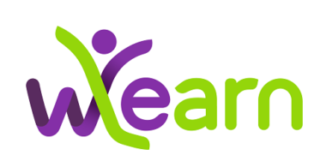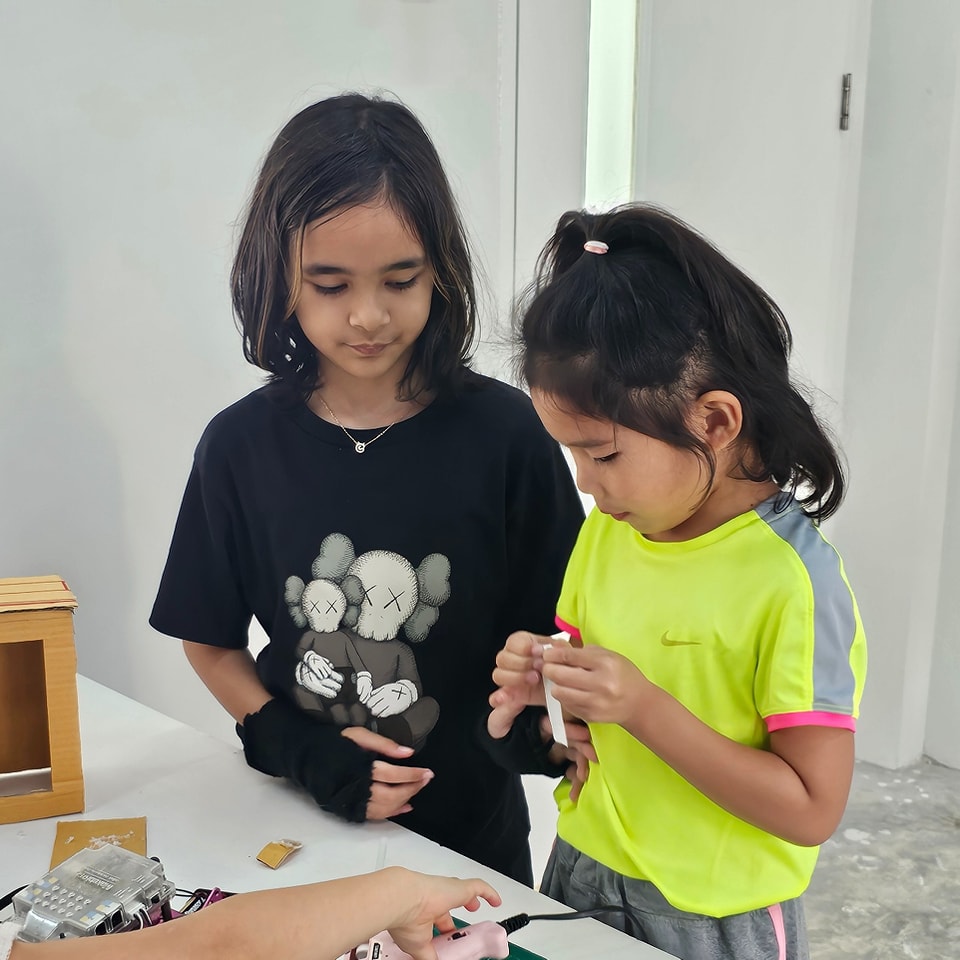
Testing & Refining Prototypes – Primary Learners Showcase Resilience and Innovation in PBL
![]() This week’s PBL brought another exciting phase for our primary learners as they transitioned from building their prototype solutions to diligently testing them. After turning their ideas into physical form last week, they’re eager to see how their innovations perform and stand up to real-world challenges.
This week’s PBL brought another exciting phase for our primary learners as they transitioned from building their prototype solutions to diligently testing them. After turning their ideas into physical form last week, they’re eager to see how their innovations perform and stand up to real-world challenges. ![]()
The testing phase revealed valuable insights, with some teams realizing they needed to tweak their designs and materials to ensure their prototypes function as intended. Learners adapted and improved their models by revisiting their initial concepts, showing resilience and a commitment to finding the best solutions ![]()
![]() .
.
Throughout this process, the learners continued to draw inspiration from nature ![]() , reinforcing the biomimicry theme as they fine-tuned their designs.
, reinforcing the biomimicry theme as they fine-tuned their designs.
Their ability to apply these principles while making necessary adjustments highlights their growing understanding of how nature can enhance human-made solutions .
By the end of the week, we saw significant progress across many teams, with each group moving closer to a fully functional prototype. Their enthusiasm and dedication have been inspiring, and the hard work they’ve put into refining their projects sets the foundation for even more success in the coming weeks. ![]()

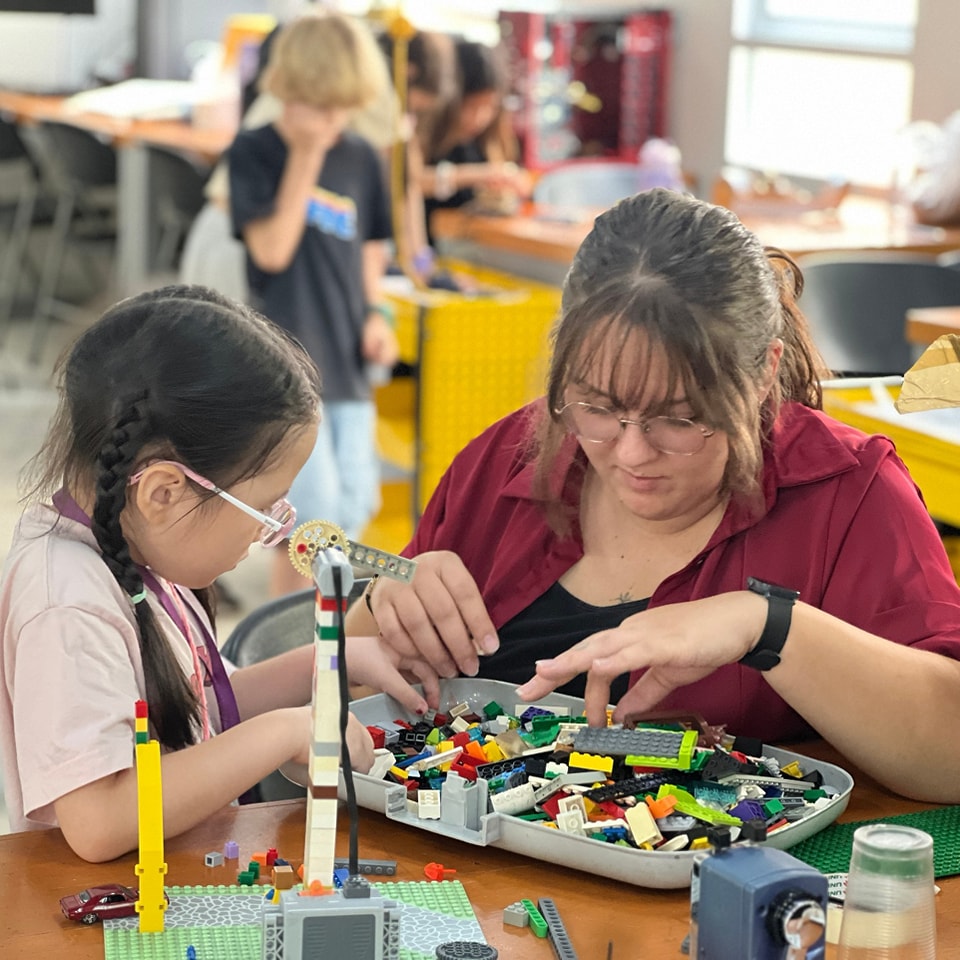
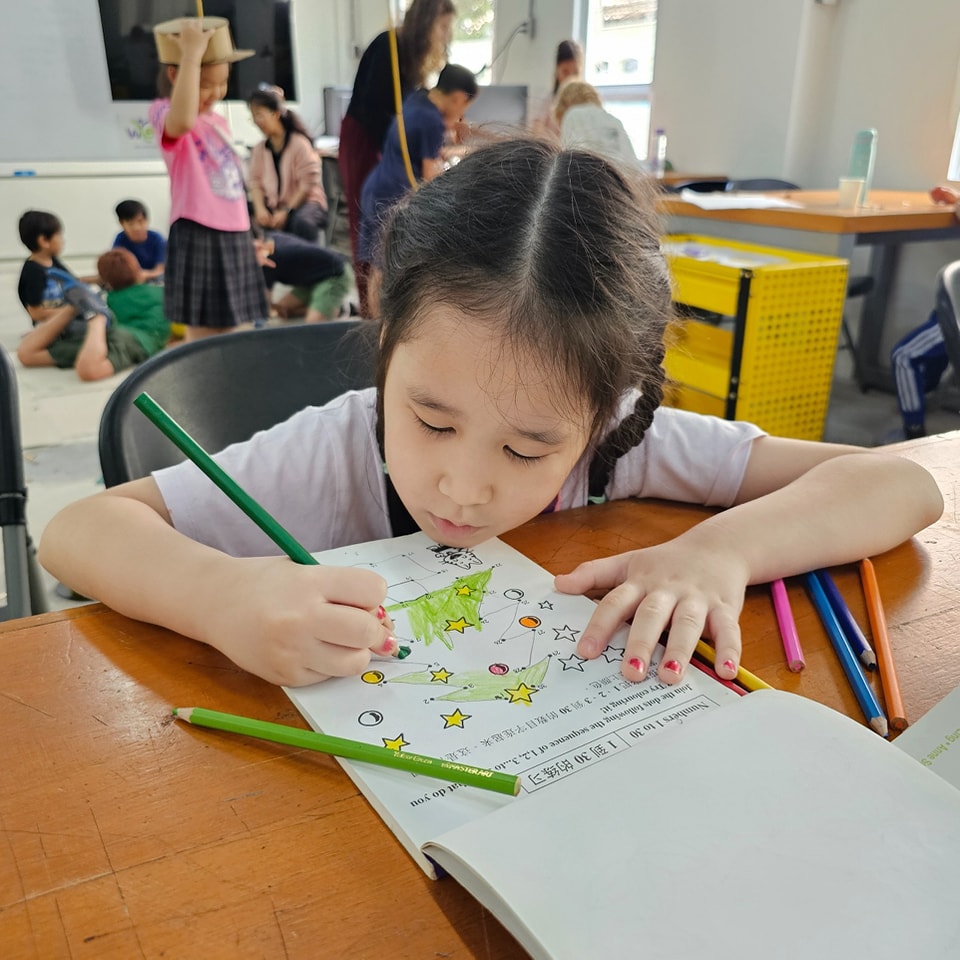
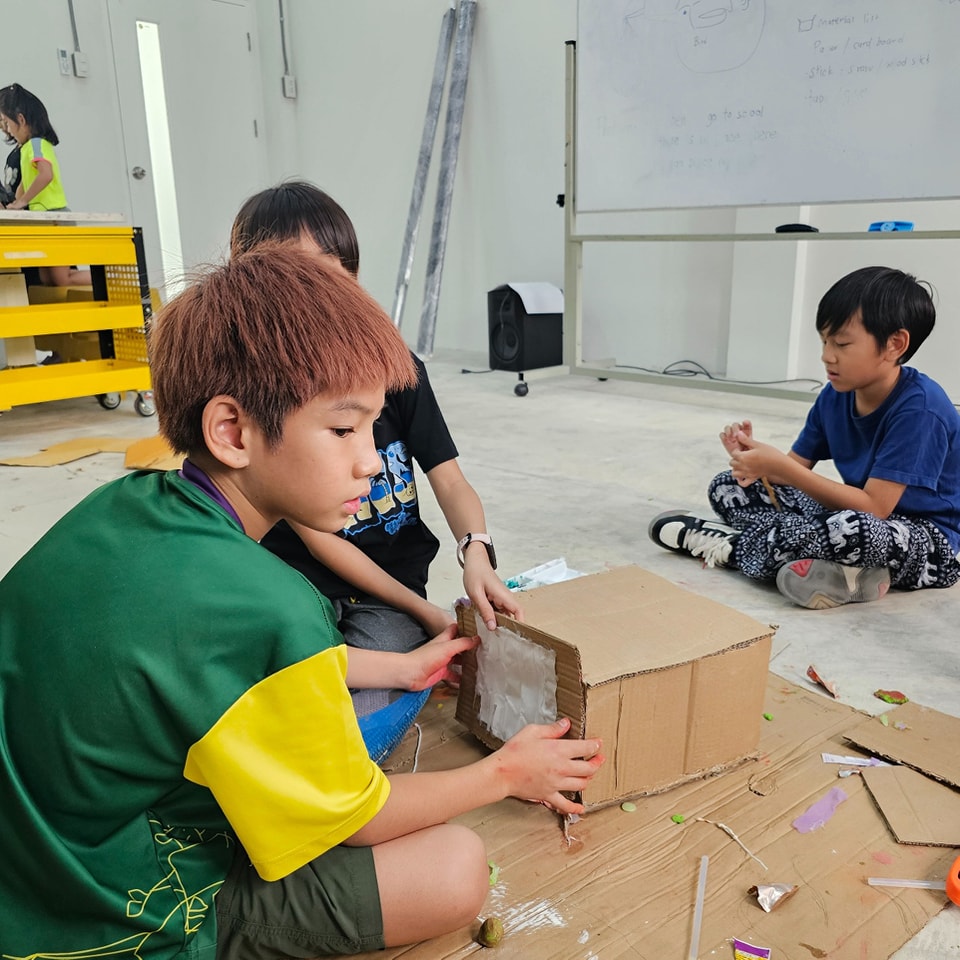
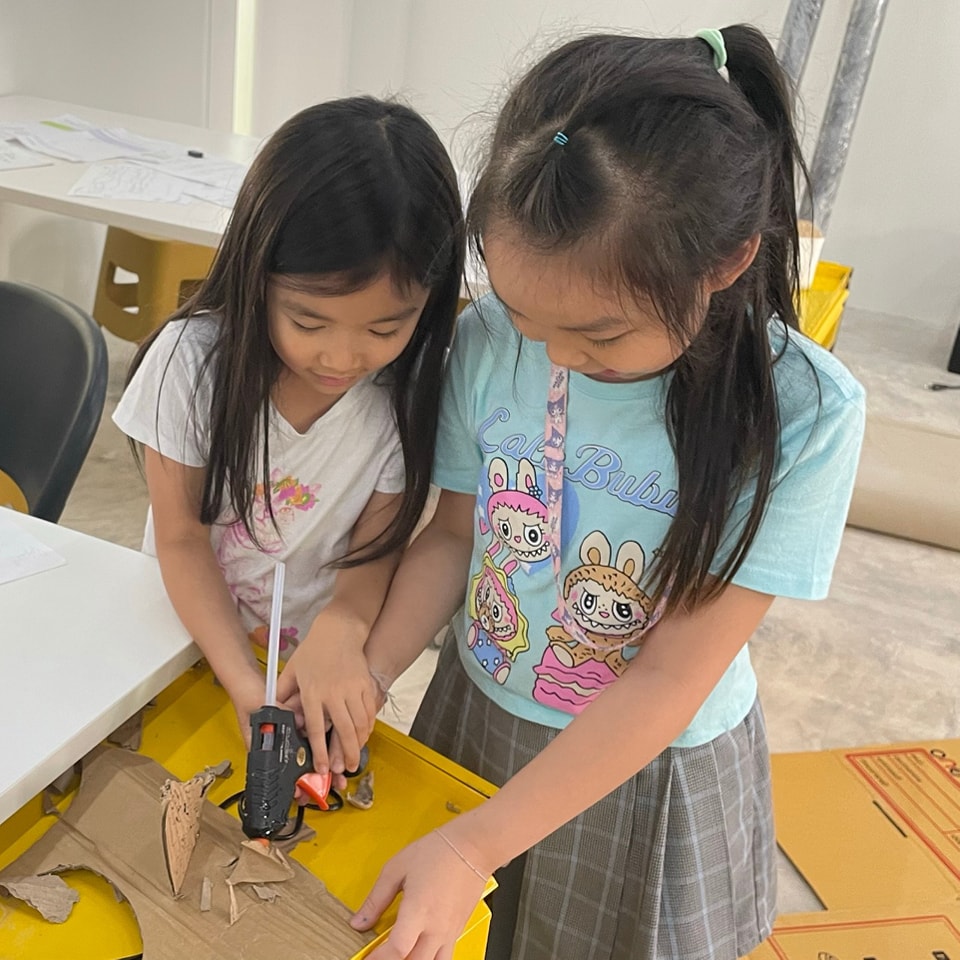
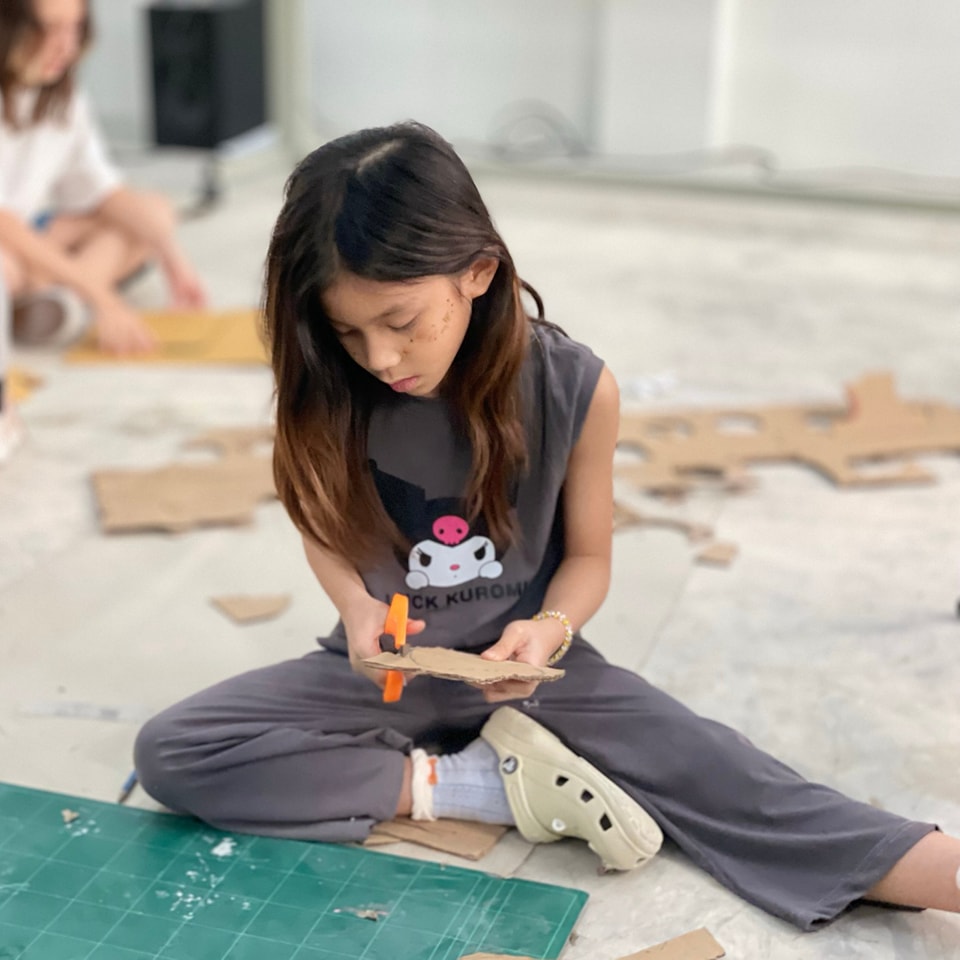

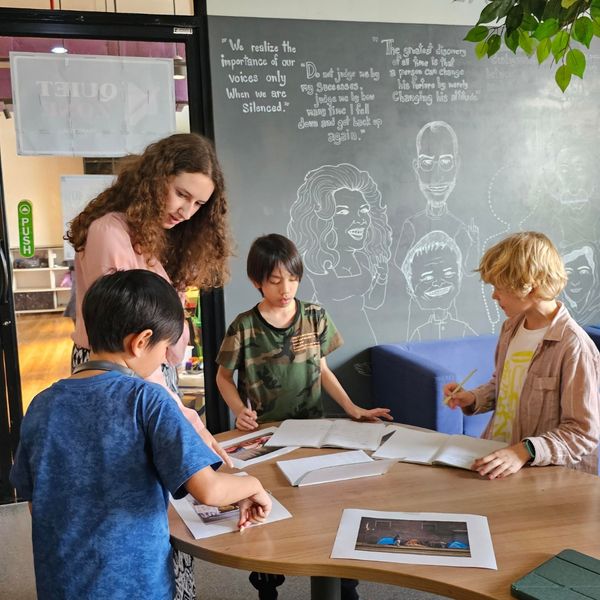
Primary PBL Learners Tackle Real-World Challenges with Innovation!
![]()
![]() An exciting phase began for our primary PBL learners.
An exciting phase began for our primary PBL learners. ![]()
Leaving the knowledge phase, the learners could start the exploration of their own project ideas. ![]()
They began the process by engaging with the concept of empathy and how it plays a key role in problem-solving. ![]() Identifying target groups and understanding their needs is a crucial aspect of this process. They also established their project groups and started working together, which will continue throughout the unit, focusing on collaboration and critical thinking.
Identifying target groups and understanding their needs is a crucial aspect of this process. They also established their project groups and started working together, which will continue throughout the unit, focusing on collaboration and critical thinking. ![]()
![]()
Together, we brainstormed and discussed various global and personal problems before the groups selected one to focus on for the rest of the unit. ![]() They conducted research on how nature addresses the same or similar issues and investigated existing inventions.
They conducted research on how nature addresses the same or similar issues and investigated existing inventions. ![]()
Finally, learners completed their first round of ideation by developing problem statements for potential solutions based on their findings. ![]()
![]()
These are the problems our learners decided to work on: ![]() Noise pollution
Noise pollution
![]() Heatstroke
Heatstroke
![]() Traffic jam
Traffic jam
![]() Air pollution
Air pollution
![]() Mosquitoes
Mosquitoes
We are looking forward to seeing these projects develop and eagerly await the learners’ innovations! ![]()

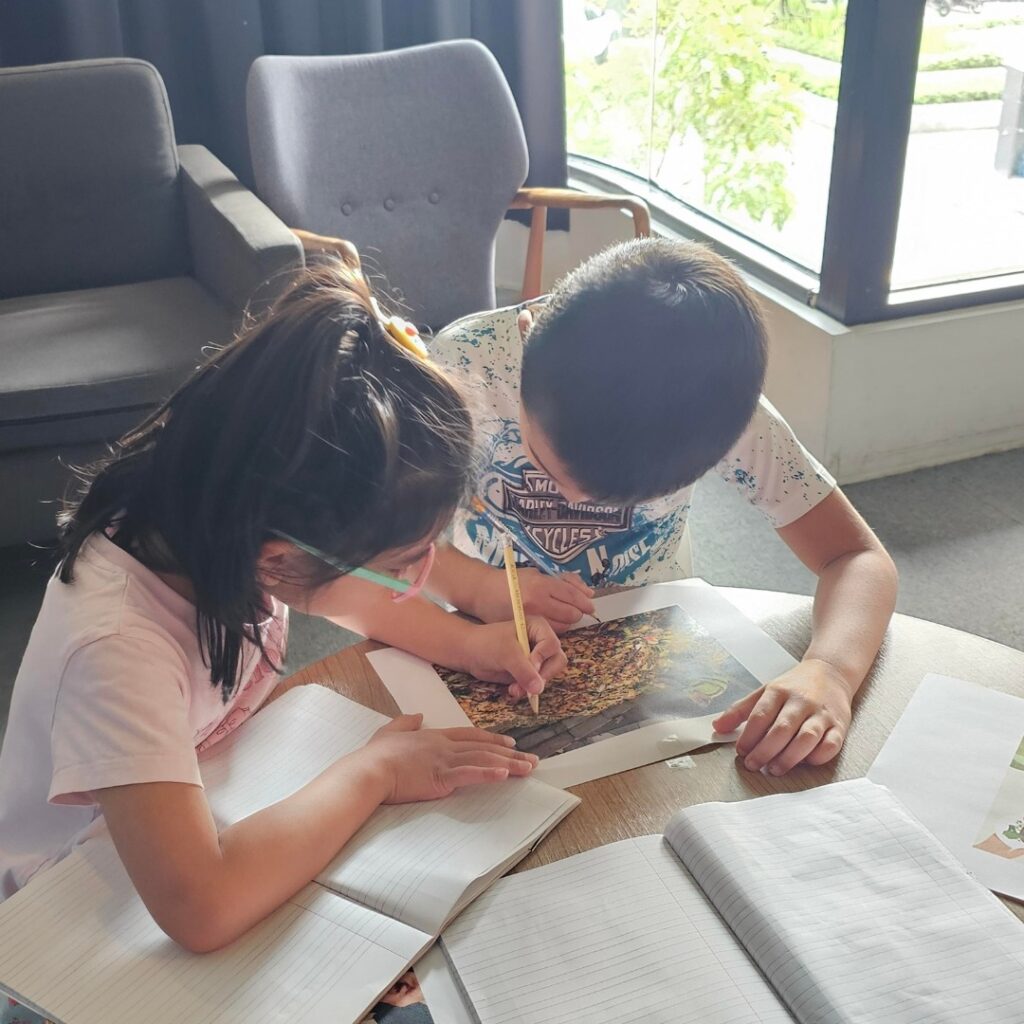
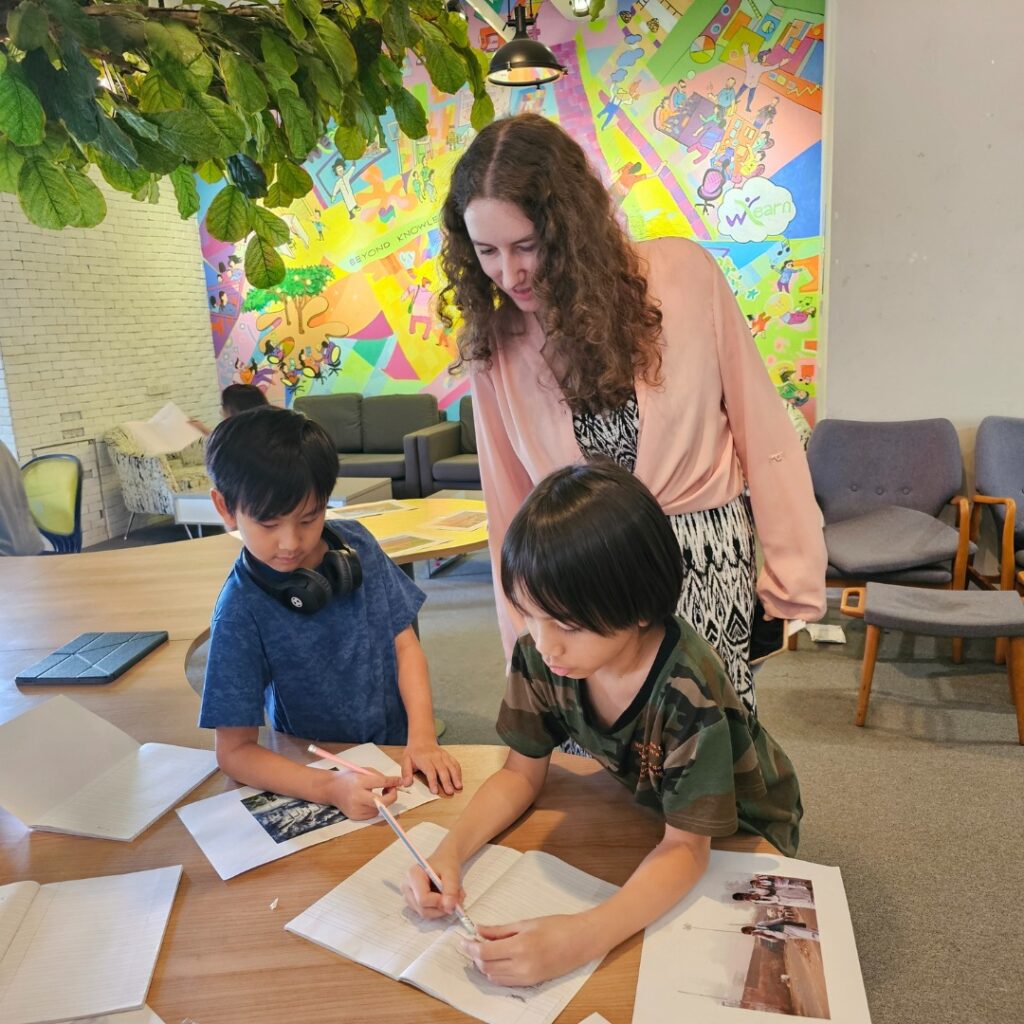
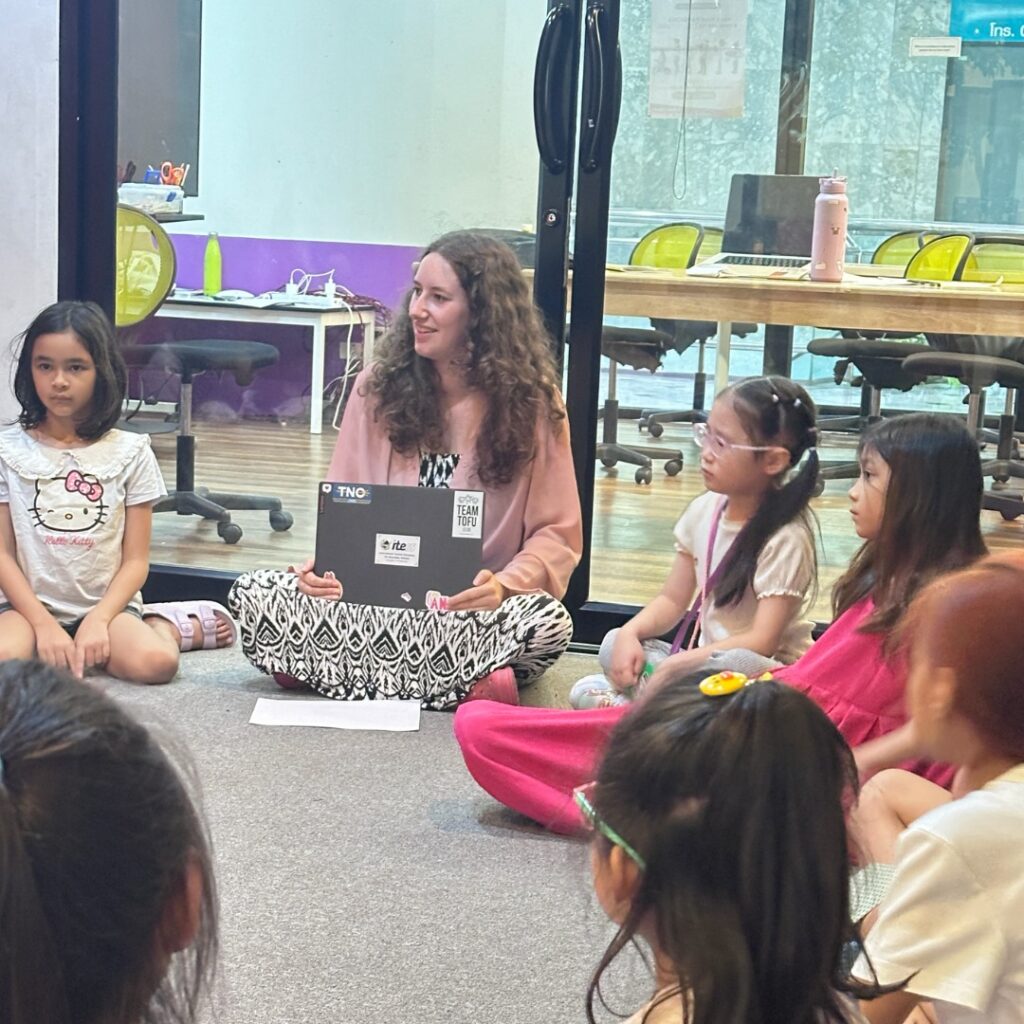
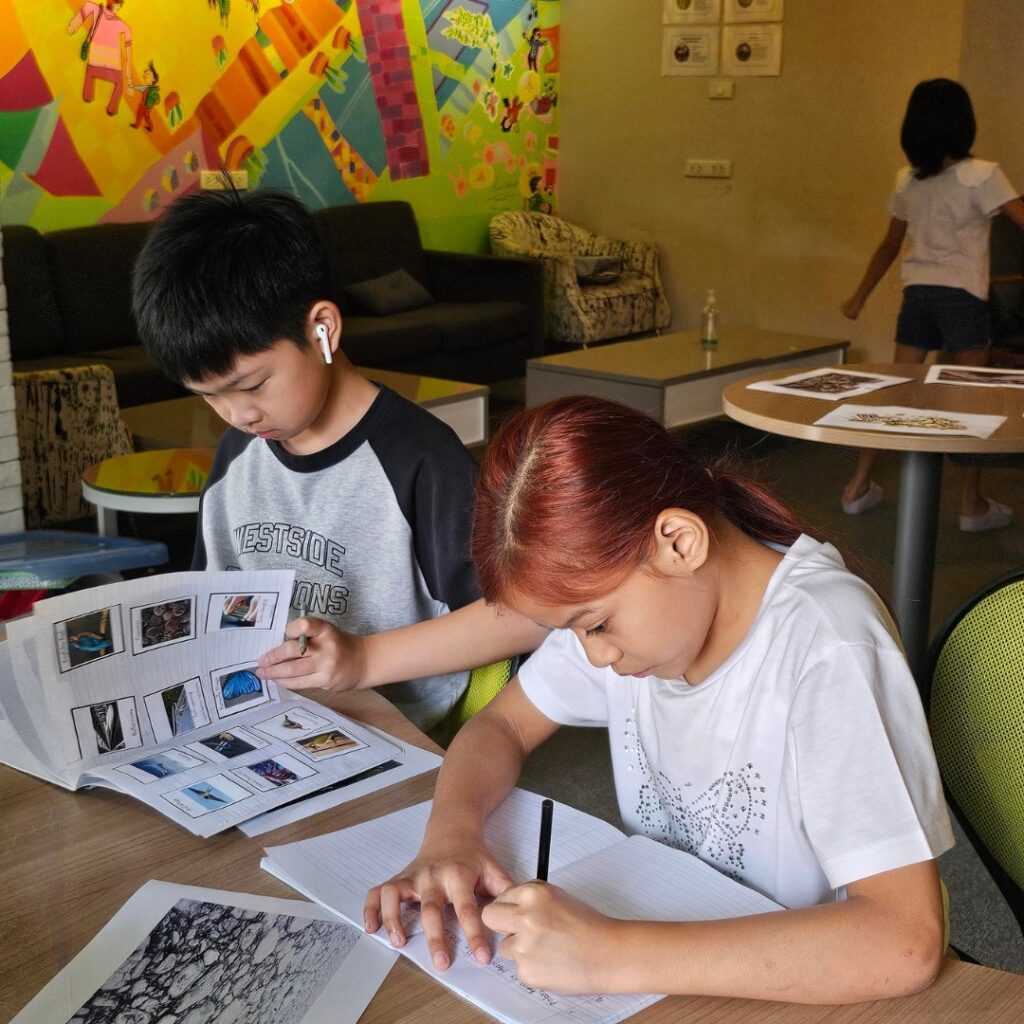
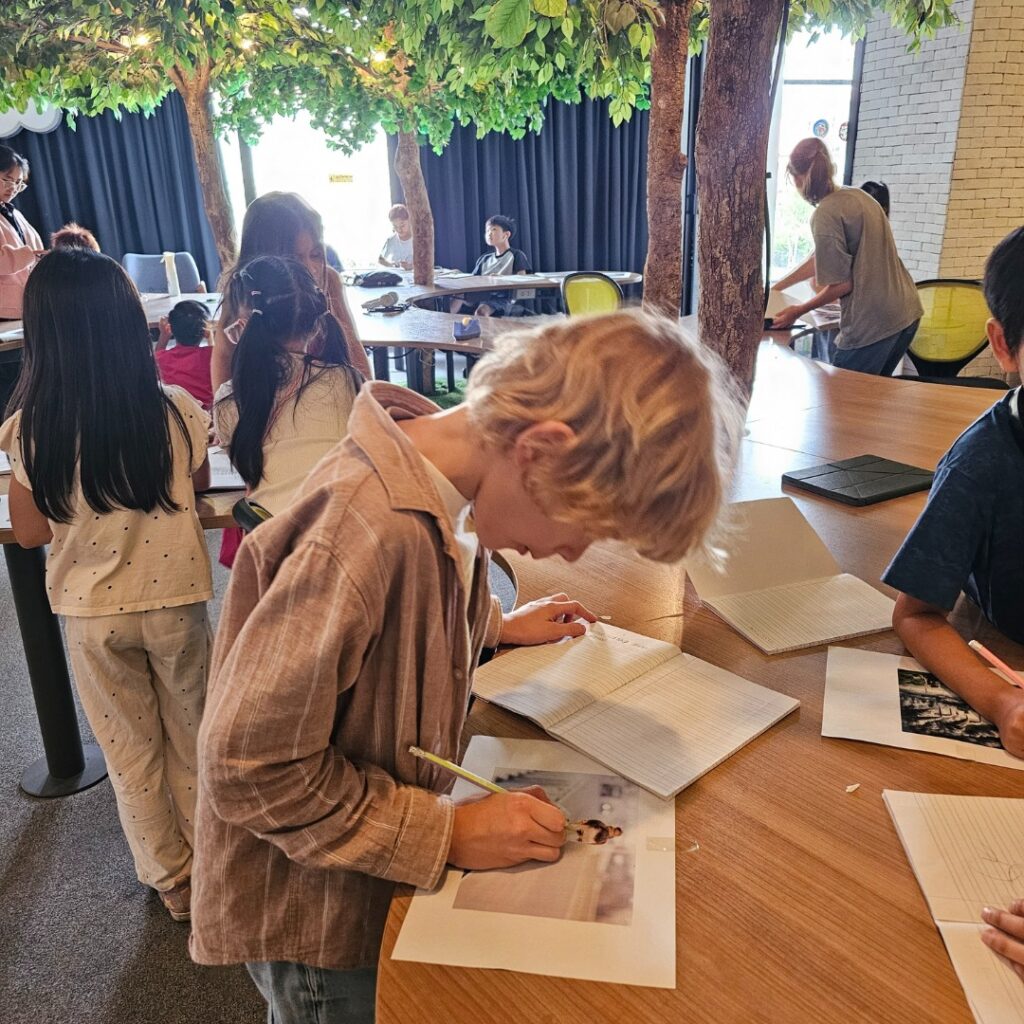

.
Read More
Secondary Learners Dive into AI & Machine Learning!
![]() The second week has come to an end! Our Lower and Upper Secondary devoted their time to understanding the two seemingly similar yet distinct concepts of Machine Learning (ML) and Artificial Intelligence (AL). Broadly summary: AI is a broad category where its systems follow the preset rules and algorithms to perform tasks. Meanwhile, ML, a subset of AI, is a system that constantly learns from data and experience to improve its performance over time. This allows our learners to ponder their concept of AI learning buddy.
The second week has come to an end! Our Lower and Upper Secondary devoted their time to understanding the two seemingly similar yet distinct concepts of Machine Learning (ML) and Artificial Intelligence (AL). Broadly summary: AI is a broad category where its systems follow the preset rules and algorithms to perform tasks. Meanwhile, ML, a subset of AI, is a system that constantly learns from data and experience to improve its performance over time. This allows our learners to ponder their concept of AI learning buddy. ![]()
Next, our learners had their first experience creating an AI chatbot and ML using MindStudio and Teachable Machine, respectively. To ensure their understanding and application skills, our learners had a mini-challenge to create an AI chatbot to solve certain problems in scenarios.
![]() To select a suitable AI learning buddy for their project, our learners dig deep into their struggling area using the Fishbone diagram. Afterwards, they went through different AI and ML tools that could be used in this project on Neo in terms of web-based or app-based, desired features and the level of complexity of the AI buddy. After selection, learners made a conceptual map to better visualise their AI buddy by adding detail. On Friday, before moving to the project’s next phase, each team gave a pitching presentation to the class to receive feedback from both coaches and peers, ensuring they were on the right track.
To select a suitable AI learning buddy for their project, our learners dig deep into their struggling area using the Fishbone diagram. Afterwards, they went through different AI and ML tools that could be used in this project on Neo in terms of web-based or app-based, desired features and the level of complexity of the AI buddy. After selection, learners made a conceptual map to better visualise their AI buddy by adding detail. On Friday, before moving to the project’s next phase, each team gave a pitching presentation to the class to receive feedback from both coaches and peers, ensuring they were on the right track. ![]()

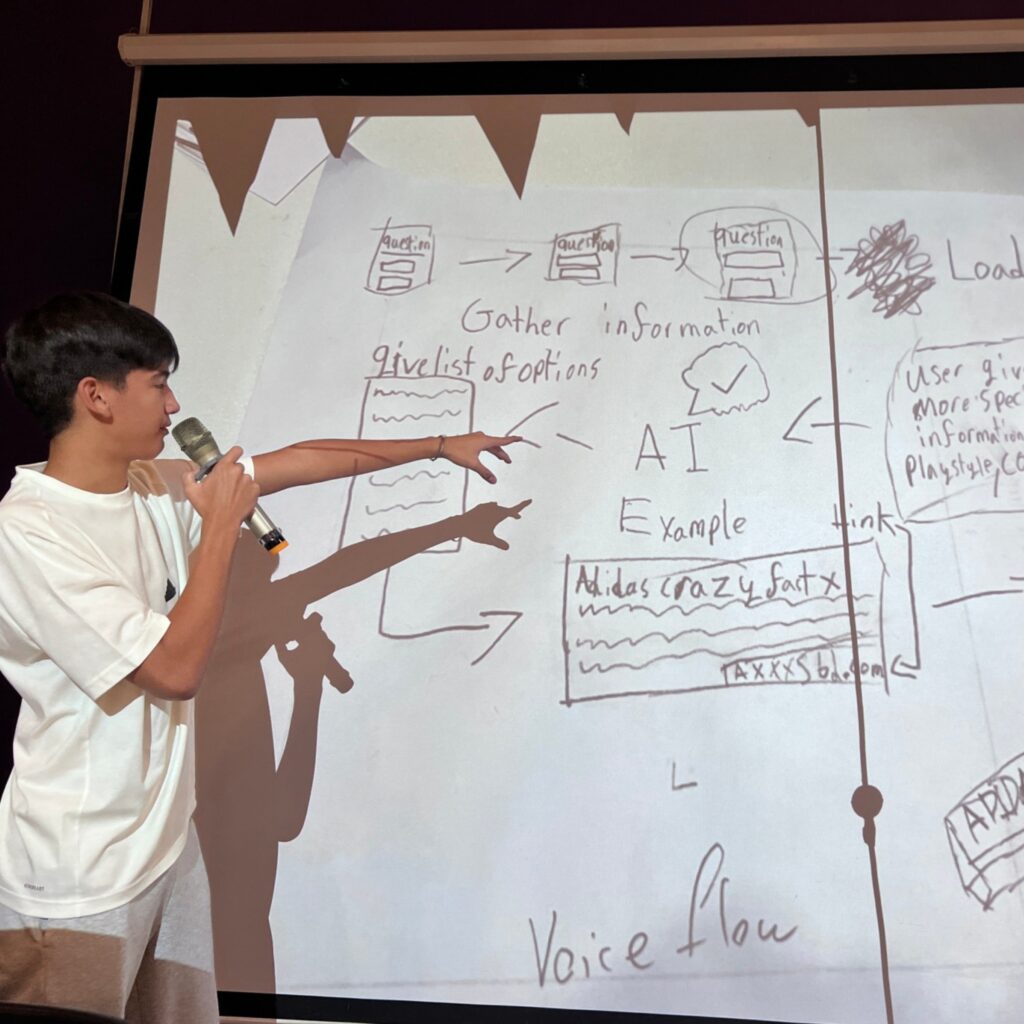
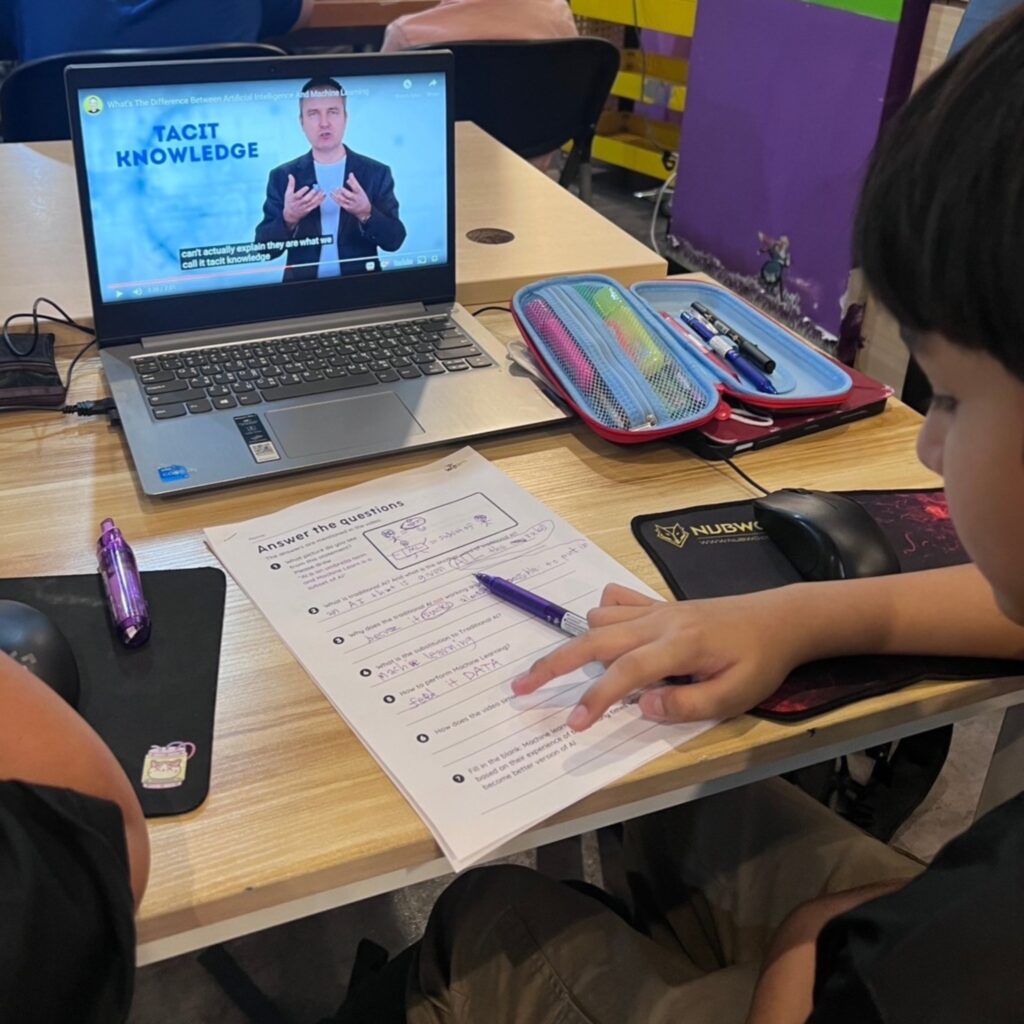
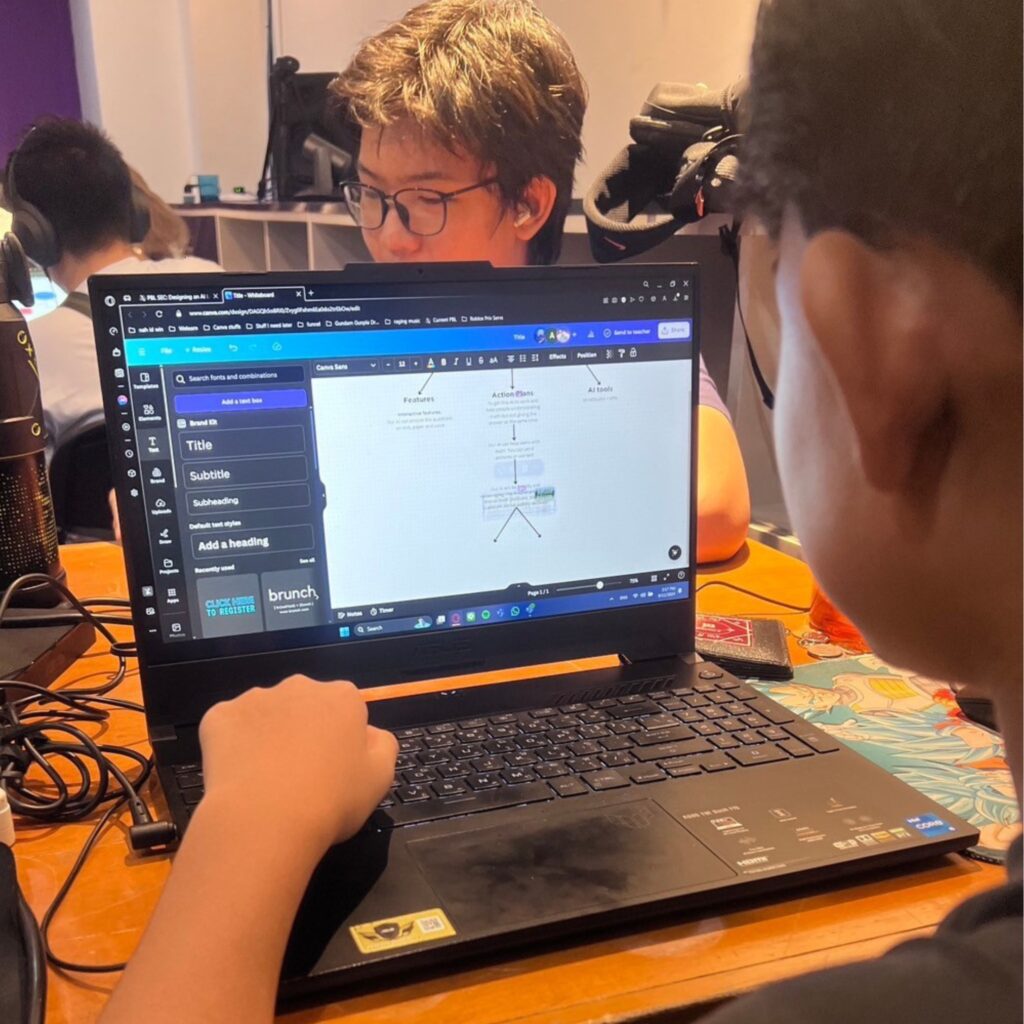
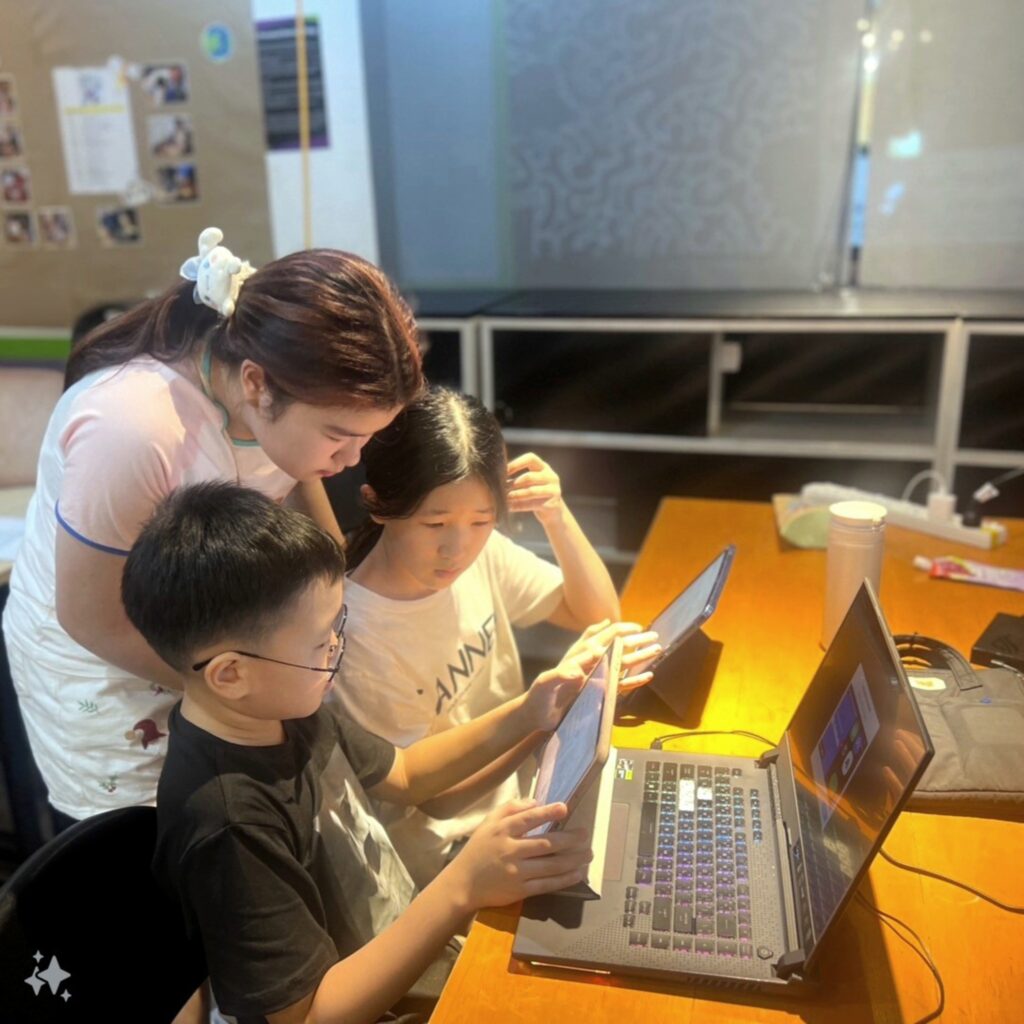
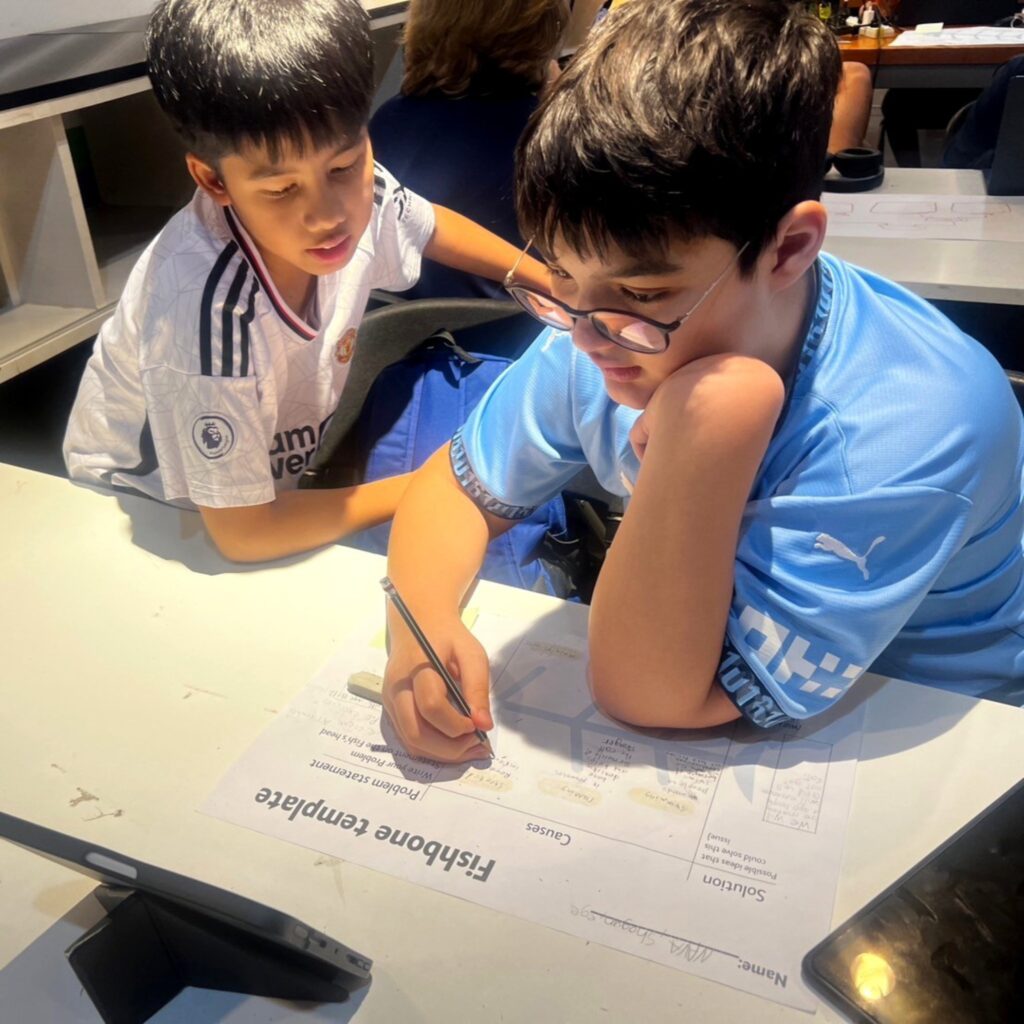
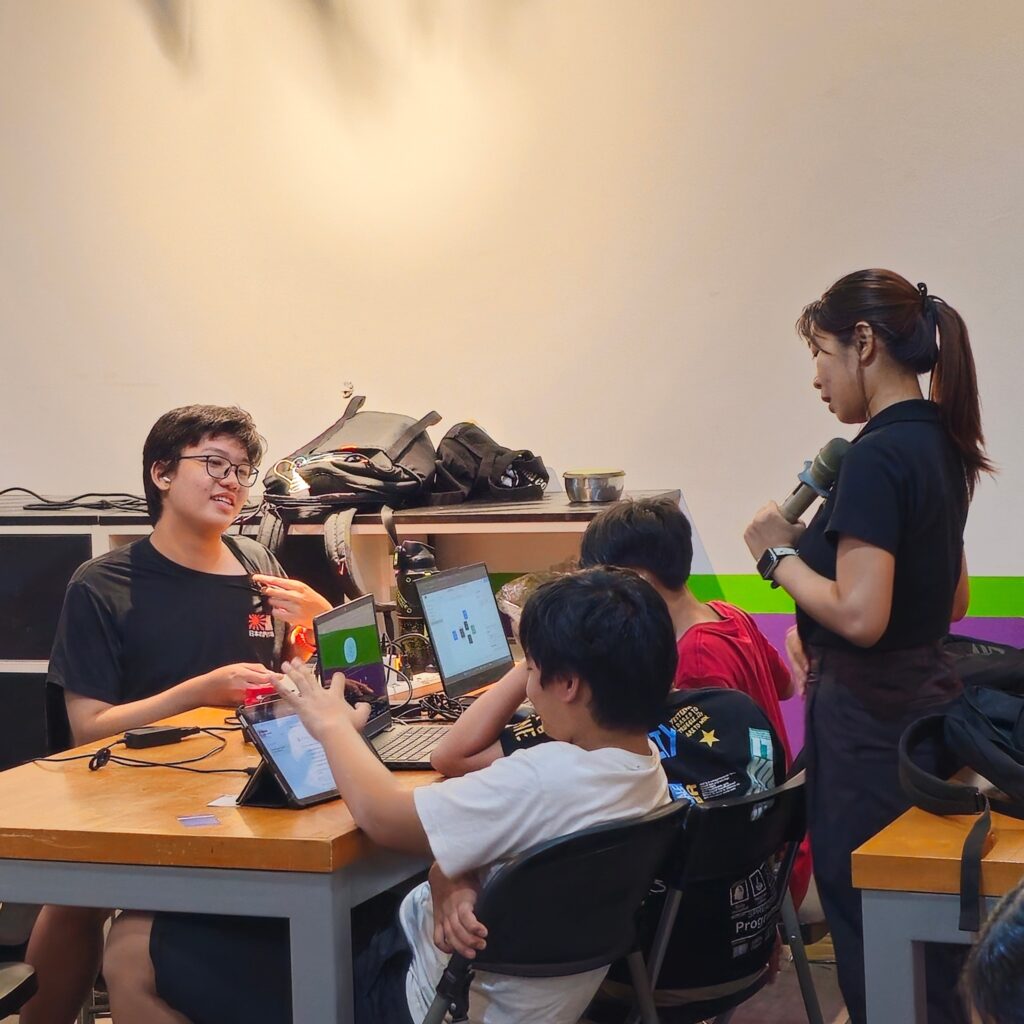
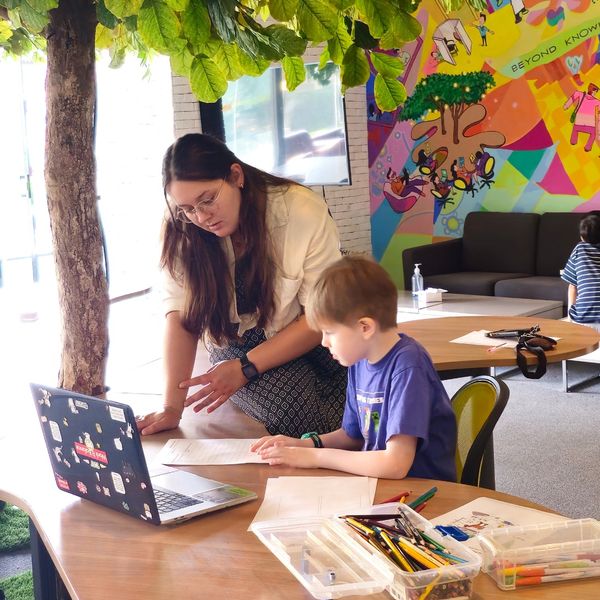
Primary Learners Explore Biomimicry and Ecosystems!
This week, the Primary learners had a wonderful opportunity to broaden their understanding of several nature-related topics that help address the central driving question of this PBL project: How can we learn from nature to solve human challenges?
![]() On our first day, we delved into the fascinating concept of biomimicry, where humans draw inspiration from nature’s ingenious designs to create innovations and enhance the quality of life. We explored key examples of survival strategies and adaptations in various plants and animals, alongside real-world technologies inspired by these natural elements. This set the stage for discussions on how nature has influenced human progress through its time-tested solutions.
On our first day, we delved into the fascinating concept of biomimicry, where humans draw inspiration from nature’s ingenious designs to create innovations and enhance the quality of life. We explored key examples of survival strategies and adaptations in various plants and animals, alongside real-world technologies inspired by these natural elements. This set the stage for discussions on how nature has influenced human progress through its time-tested solutions.
![]() As the week progressed, learners turned their attention to ecosystems, focusing on fundamental concepts such as food chains, food webs, and biodiversity. Through playful activities and interactive puzzles, learners explored the intricate interactions between living and non-living components within ecosystems, gaining a deeper understanding of how these systems operate and respond to external influences like climate and human activity.
As the week progressed, learners turned their attention to ecosystems, focusing on fundamental concepts such as food chains, food webs, and biodiversity. Through playful activities and interactive puzzles, learners explored the intricate interactions between living and non-living components within ecosystems, gaining a deeper understanding of how these systems operate and respond to external influences like climate and human activity.
![]() Learners applied their newfound knowledge by creating nature-tech charts, which showcased a range of existing technologies alongside their nature-inspired origins. This activity encouraged critical thinking as learners matched inventions with their natural inspirations, drawing connections between structures or functions found in nature and their technological counterparts.
Learners applied their newfound knowledge by creating nature-tech charts, which showcased a range of existing technologies alongside their nature-inspired origins. This activity encouraged critical thinking as learners matched inventions with their natural inspirations, drawing connections between structures or functions found in nature and their technological counterparts.
They also participated in a fun family trading card game, collecting a complete set representing an ecosystem. This interactive activity helped them reflect on the importance of biodiversity and interconnectivity in nature, solidifying their understanding of the week’s lessons.
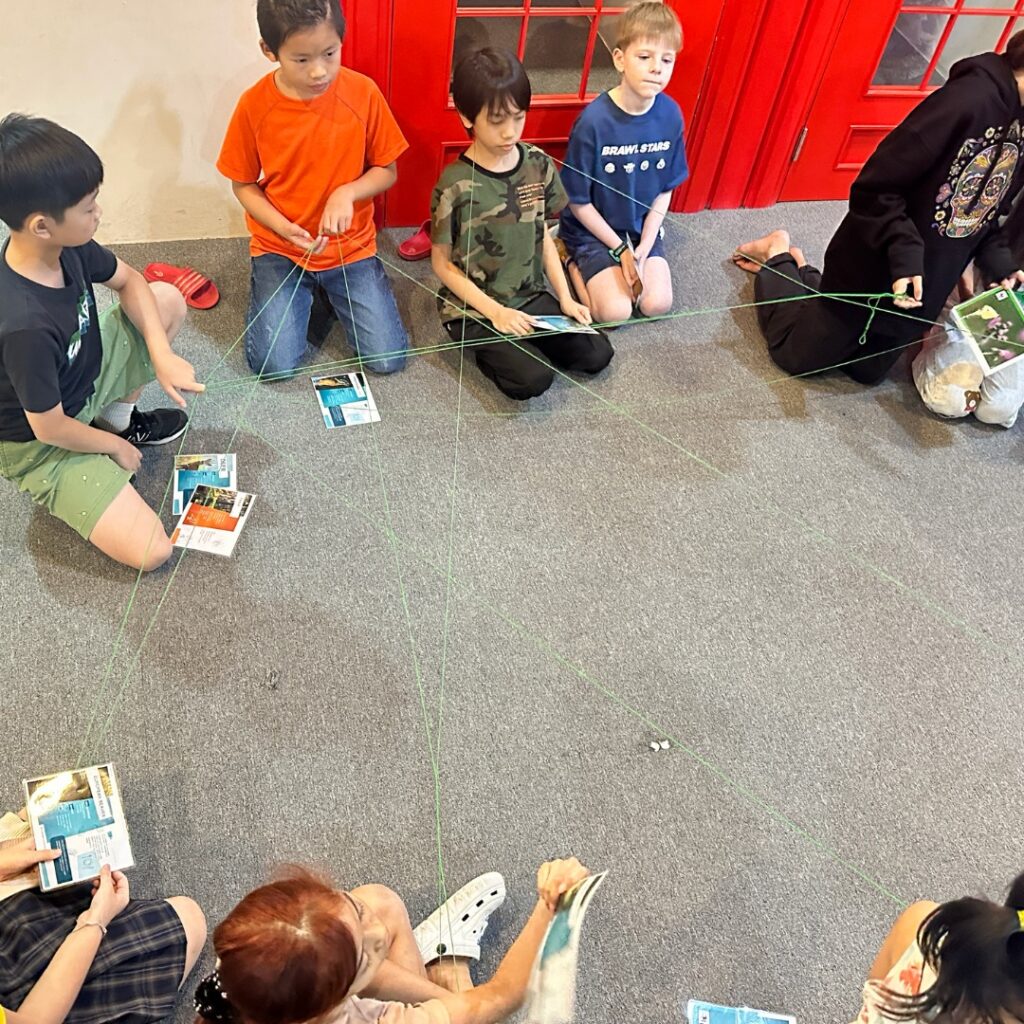
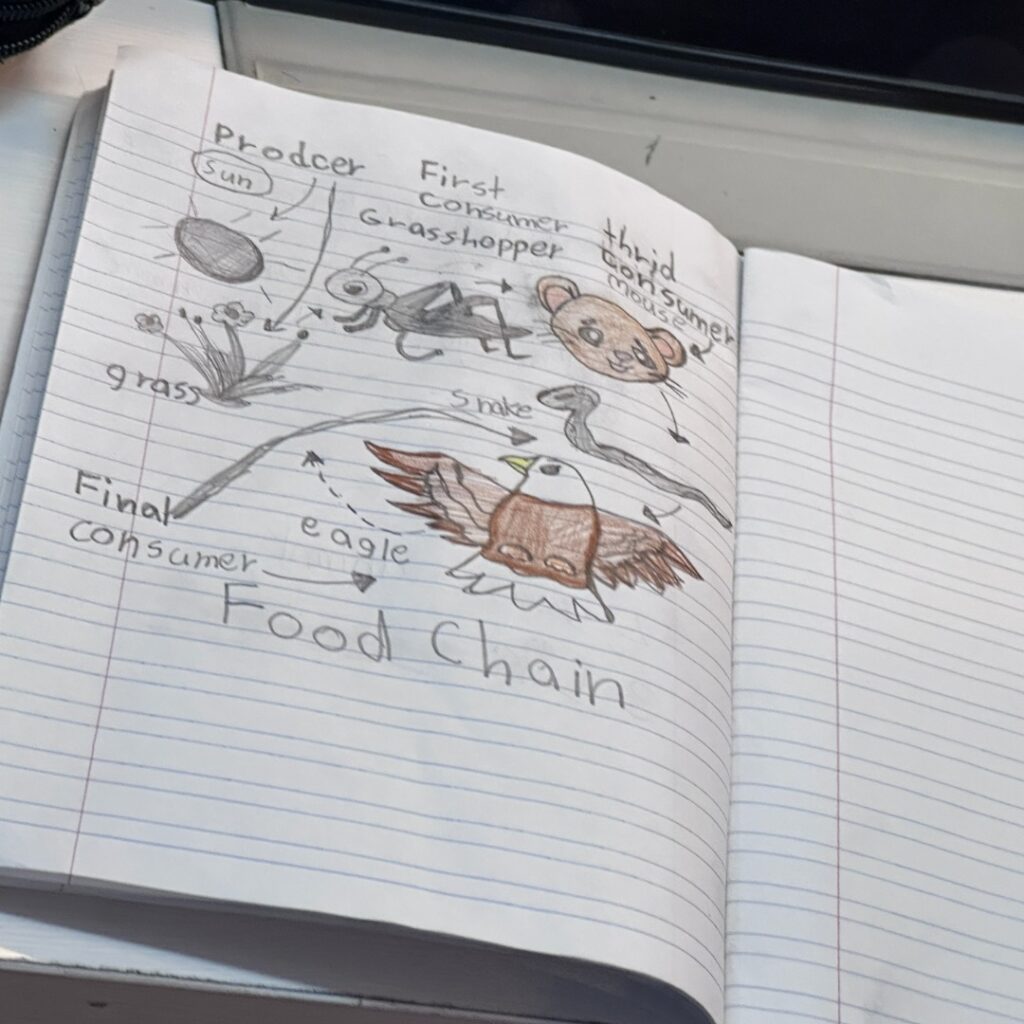
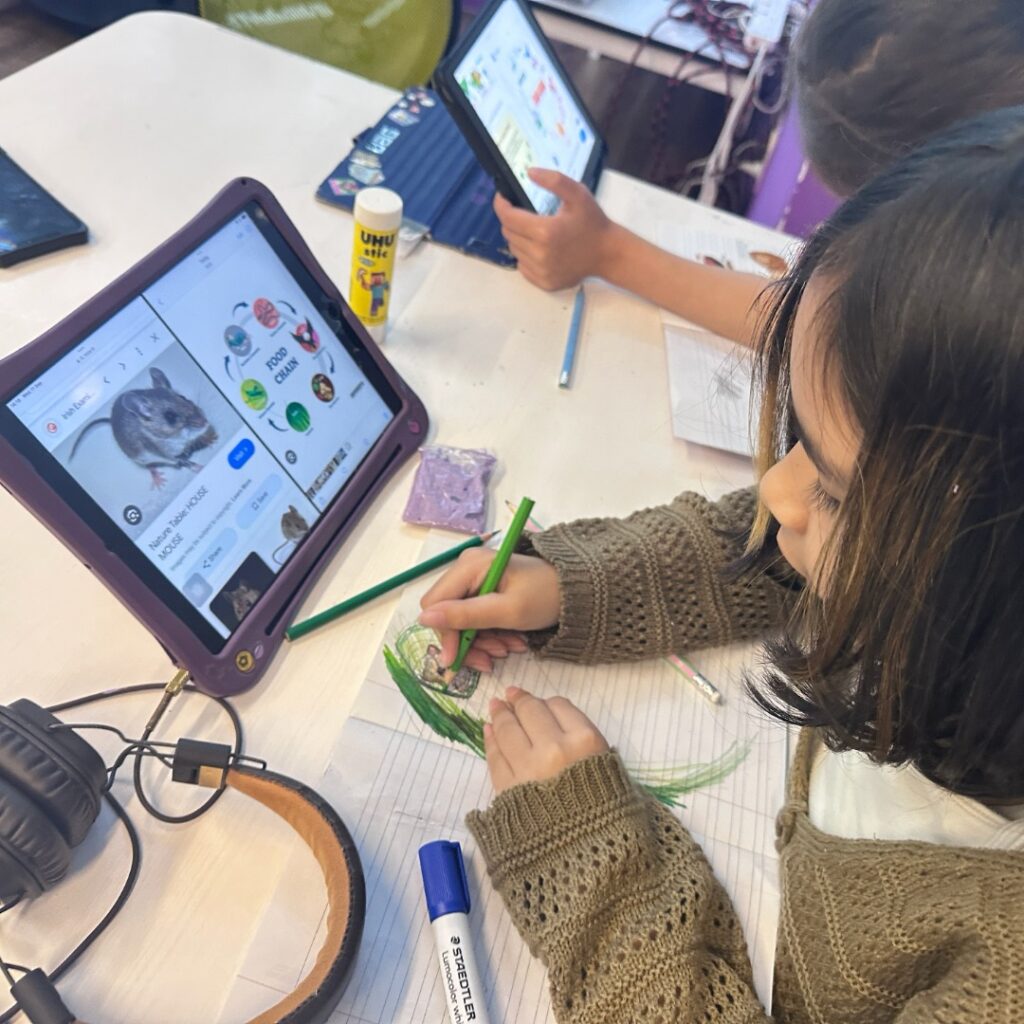
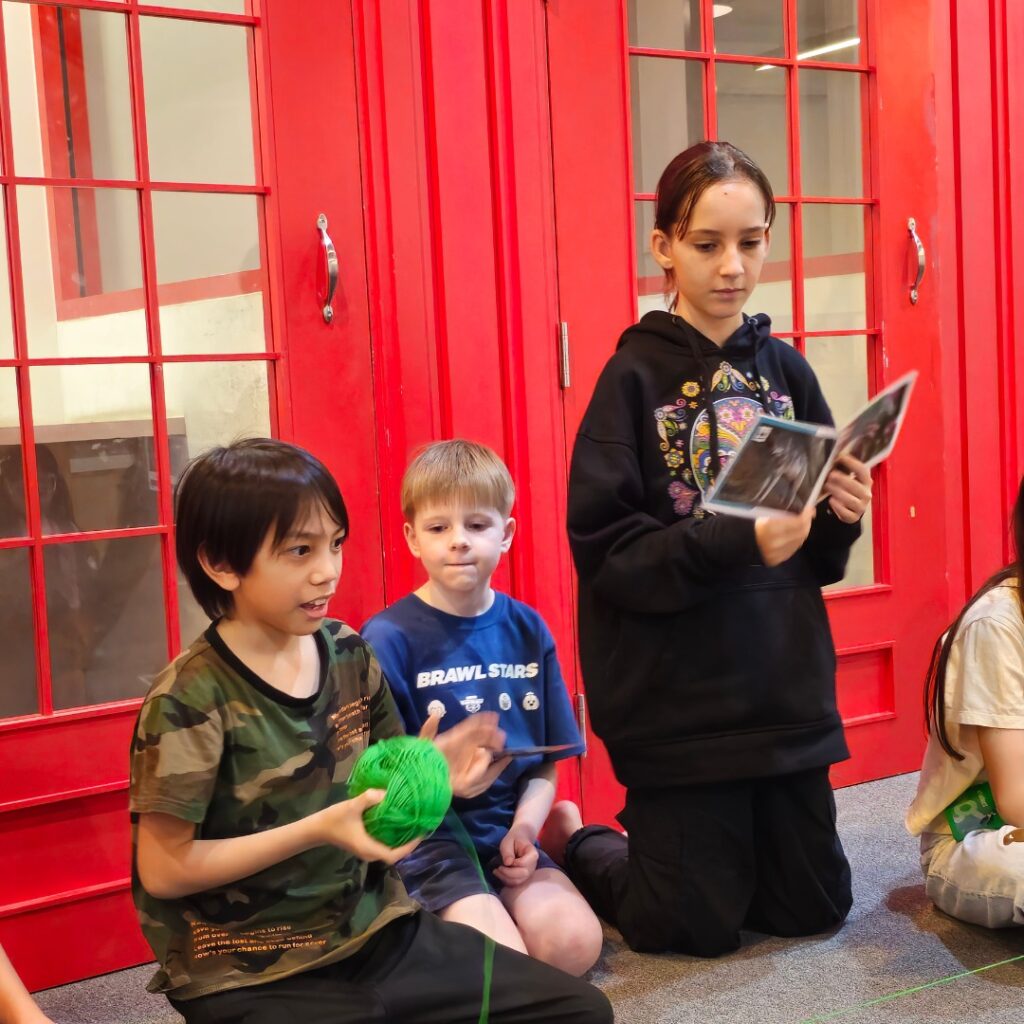
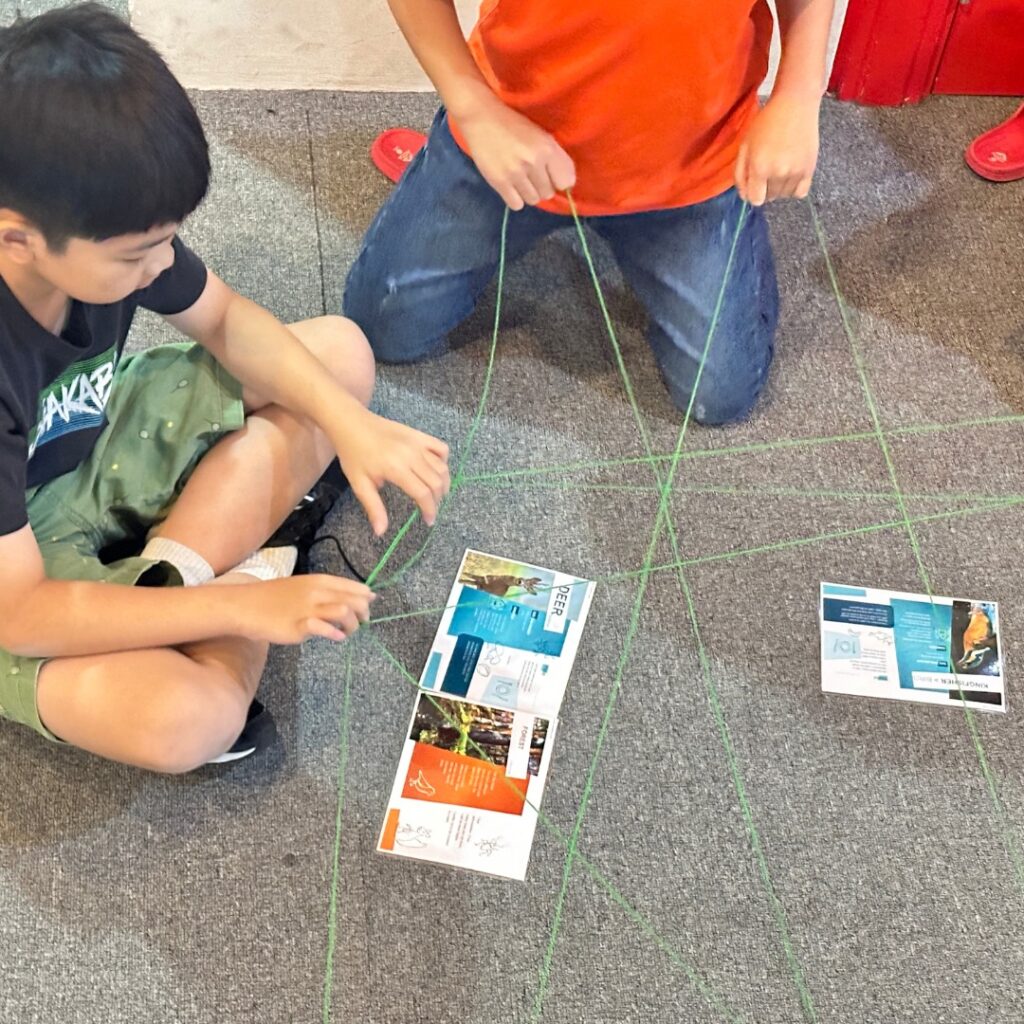
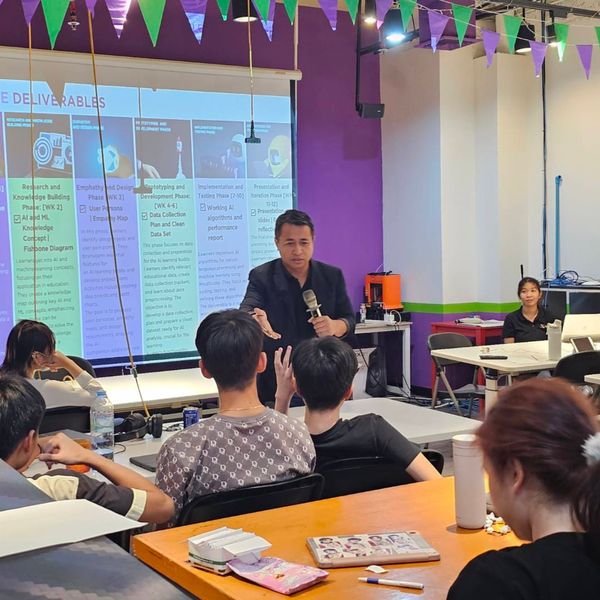
Creating an AI Learning Buddy: A Journey Begins
Creating an AI Learning Buddy: A Journey Begins ![]()
![]()
During the first week, our secondary learners were introduced to their exciting Project-Based Learning (PBL) topic: “Creating an AI Learning Buddy.” ![]()
![]() To give them a solid start, Dr. Alfred kicked things off with an engaging speech, outlining the project’s vision and breaking it down into six key milestones. He also clearly defined the deliverables expected at each stage, helping our learners understand what would be required of them as they progress through this challenge.
To give them a solid start, Dr. Alfred kicked things off with an engaging speech, outlining the project’s vision and breaking it down into six key milestones. He also clearly defined the deliverables expected at each stage, helping our learners understand what would be required of them as they progress through this challenge. ![]()
The focus for this first week was on the launch phase. Learners were guided through the main driving questions and objectives of the project, as well as introduced to essential project management tools that will help them stay organized and focused.
To further develop their ideas, learners embarked on an investigative process. Using a method that involved four quadrants and shortlisting techniques, they analyzed the areas or subjects where they felt they were experiencing challenges. This reflective exercise helped them identify focus areas and eventually led to the formation of project teams within the secondary cohort, ensuring each learner could contribute their strengths while addressing their individual struggles. ![]()
![]()
As we began to dive deeper into the subject of artificial intelligence, it became crucial to assess the overall level of understanding across the cohort. To achieve this, learners were tasked with applying their existing knowledge by creating mind maps. These mind maps illustrated their early ideas and concepts for designing their AI learning buddy, giving us a glimpse into their thought processes and where they might need further support in the weeks ahead. ![]()
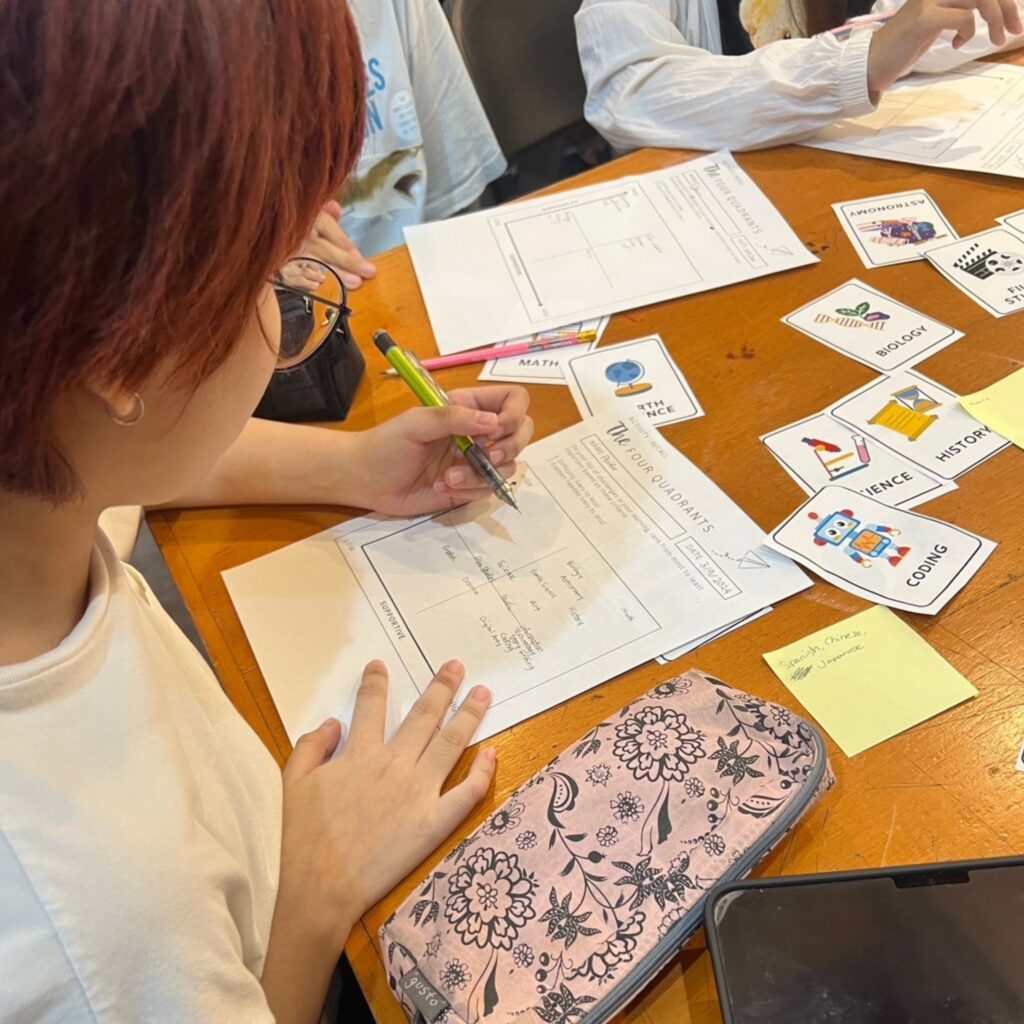

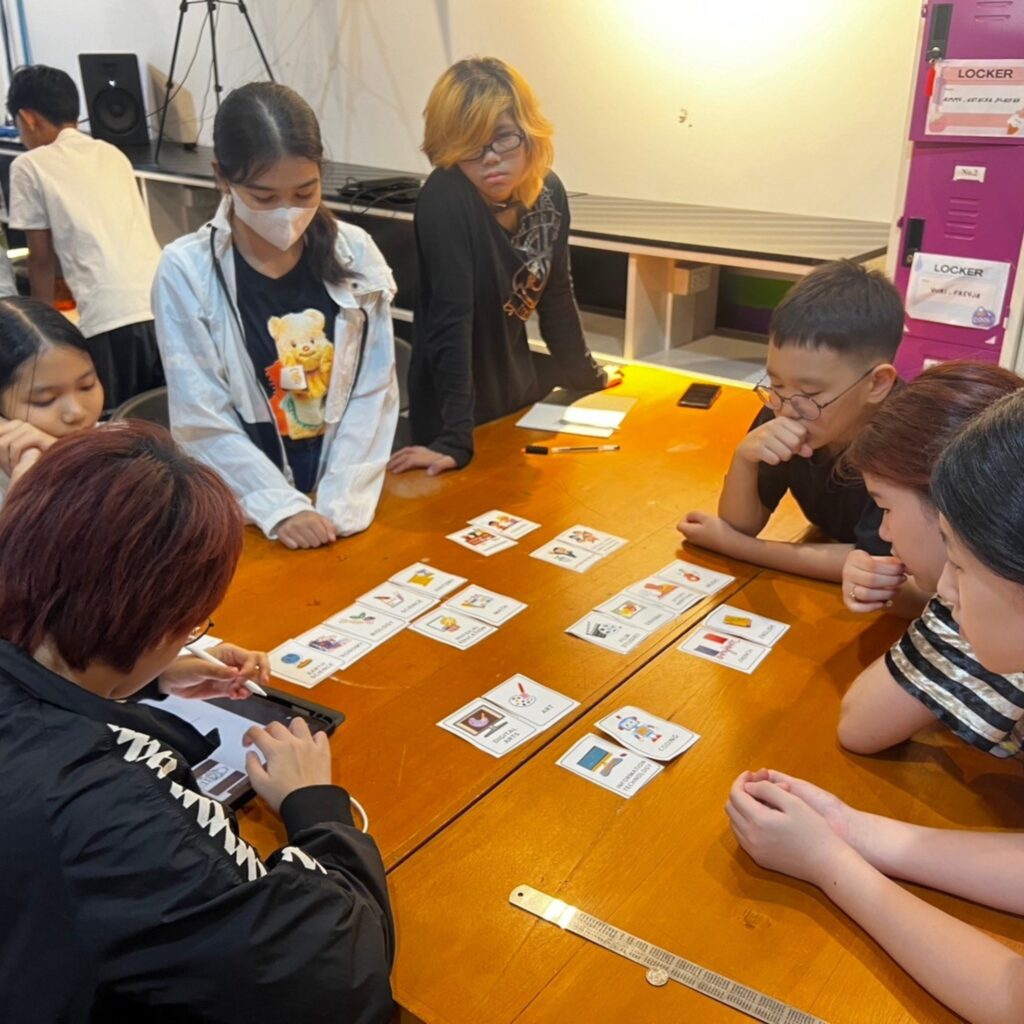
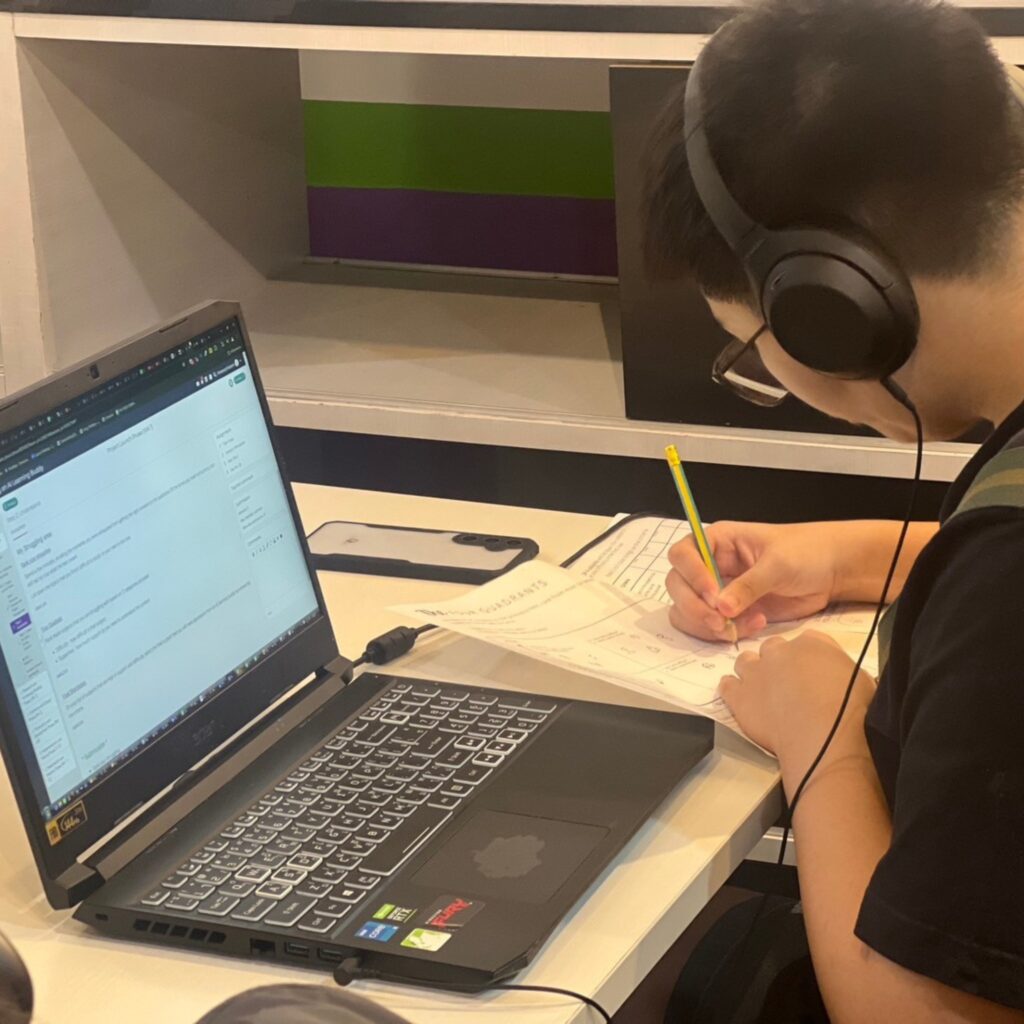
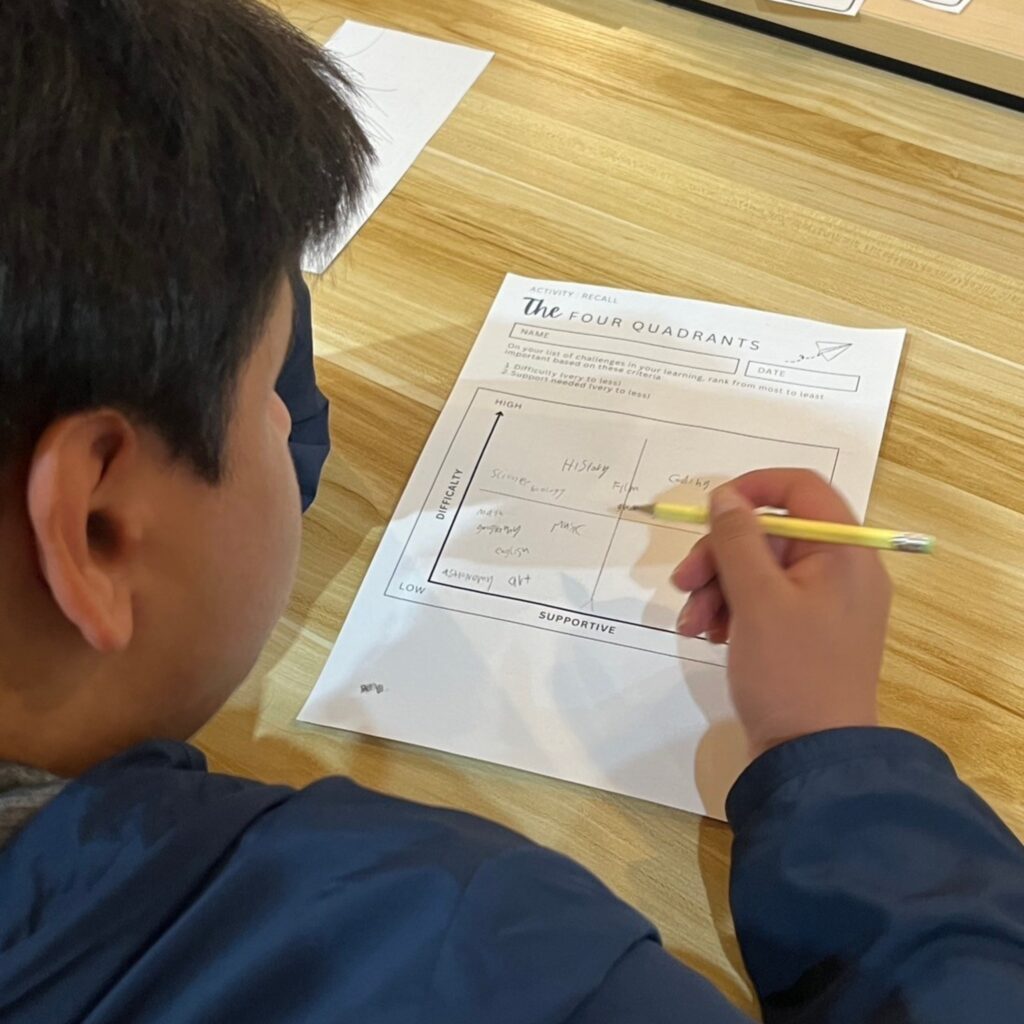
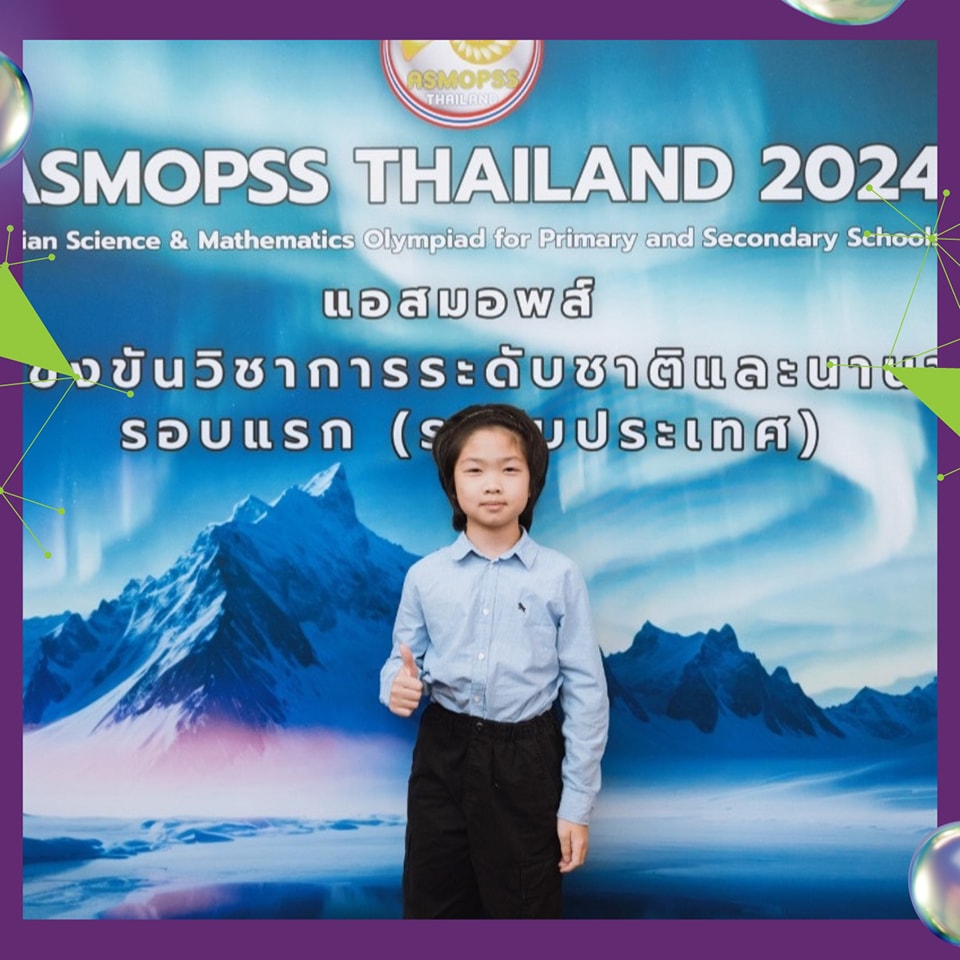
Congratulations to James Krittiphat Chaowadee for winning the Bronze Medal in the Asian Science and Mathematics Olympiad for Primary and Secondary School (ASMOPSS) held on August 4, 2024!
James has advanced to the final round on September 29, where he will compete to represent Thailand at the ESOLIO in Bali, Indonesia, from June 16-20, 2025.
He placed:
![]() 129th in the Central region
129th in the Central region
![]() 209th nationwide, with a percentile rank of 88.5.
209th nationwide, with a percentile rank of 88.5.
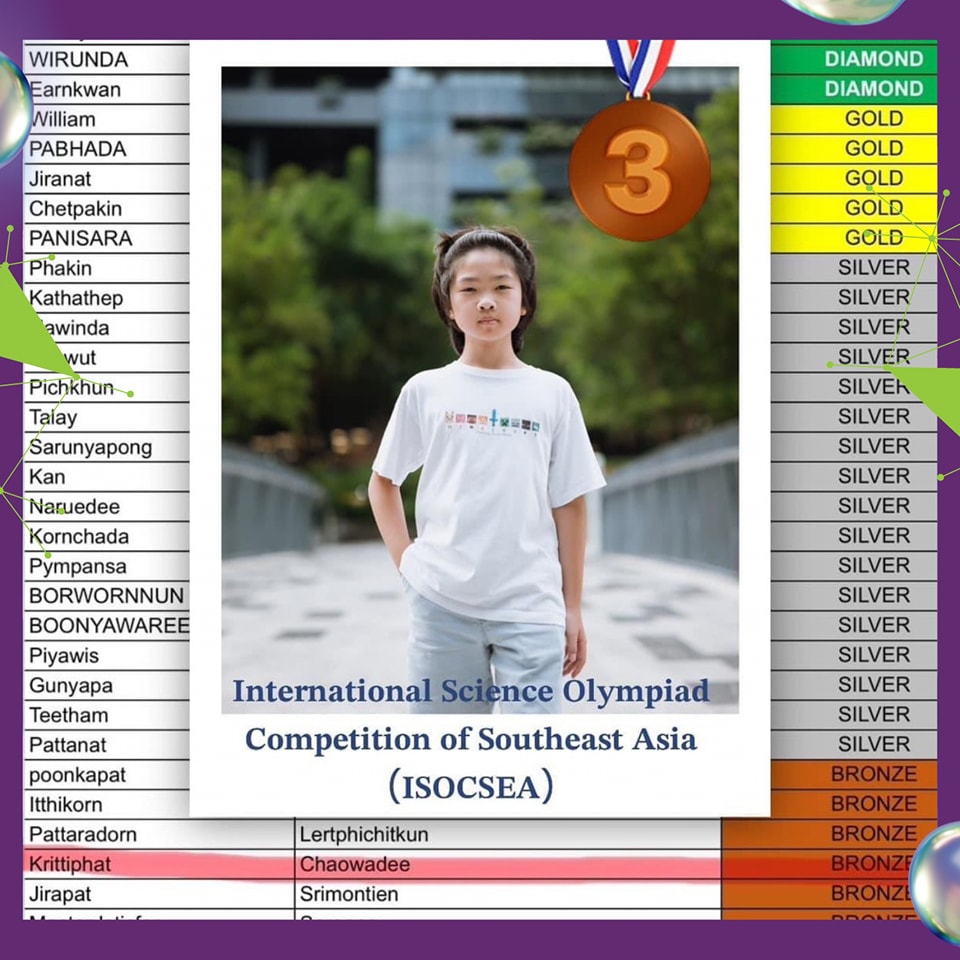
Additionally, James participated in the International Science Olympiad Competition of Southeast Asia (ISOCSEA) on July 14, 2024, a
nd won a Bronze Medal ![]() . He will now proceed to the International Final Round hosted in Chiang Mai, Thailand, from December 20-24, 2024.
. He will now proceed to the International Final Round hosted in Chiang Mai, Thailand, from December 20-24, 2024.
At WeLearn, we support every child’s dream and ambition, we are proud to celebrate James’ incredible achievements and wish him the best of luck in the upcoming competitions! ![]()
![]()
.
Read More
Exciting New PBL Journey: Solving Human Problems with Intelligent Nature!
Our learners took on an exciting new journey with a Project-Based Learning (PBL) challenge called “Solving Human Problems with Intelligent Nature.” To kick things off, we spent time diving into the main question that will guide us through the SEP Term 2024-25.
This essential question serves as the roadmap for their entire PBL experience. Our learners also revisited what they already knew about nature, while getting introduced to important ideas that will shape their learning over the next several weeks. ![]()
![]()
![]()
![]() To bring the lessons to life, we took a nature walk at Lumpini Park on Wednesday. This outdoor adventure gave the learners a chance to observe and connect with nature up close. They were able to explore different natural elements firsthand, sparking their curiosity and prompting them to think deeply about the world around them. The experience gave them much to reflect on, and we’re excited to see how it will influence their learning and understanding in the days to come.
To bring the lessons to life, we took a nature walk at Lumpini Park on Wednesday. This outdoor adventure gave the learners a chance to observe and connect with nature up close. They were able to explore different natural elements firsthand, sparking their curiosity and prompting them to think deeply about the world around them. The experience gave them much to reflect on, and we’re excited to see how it will influence their learning and understanding in the days to come. ![]()
![]()
At the end of the week, the learners took time to reflect on the big question that drives this unit: “How can observing the natural world help us discover solutions to human problems?” Additionally, we introduced a weekly reflection moment to look back at what has been learned during the past week. ![]()
Exciting times ahead! ![]()
.








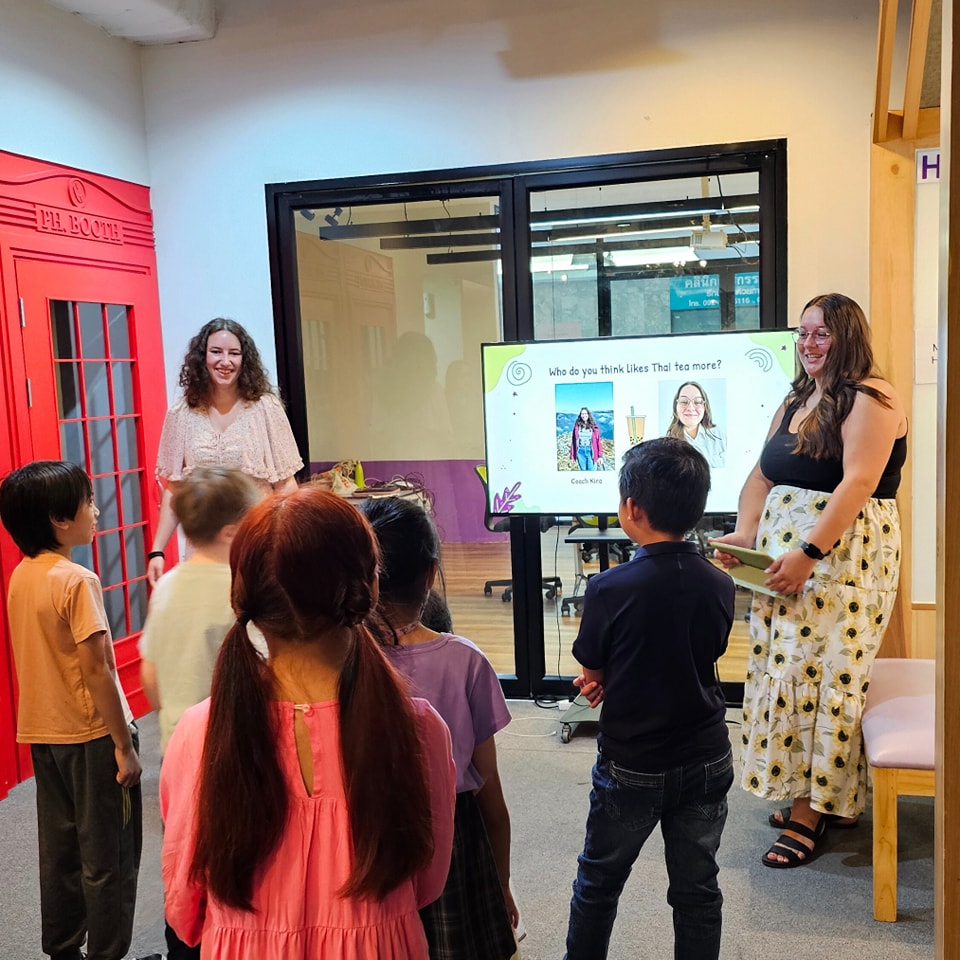
What an incredible first day back!
Our learners jumped right into the new September term with exciting ice-breaking activities, reconnecting with old friends, and giving a warm welcome to our new learners.
Here’s to a term full of learning, growth, enriching experiences, and memorable moments!
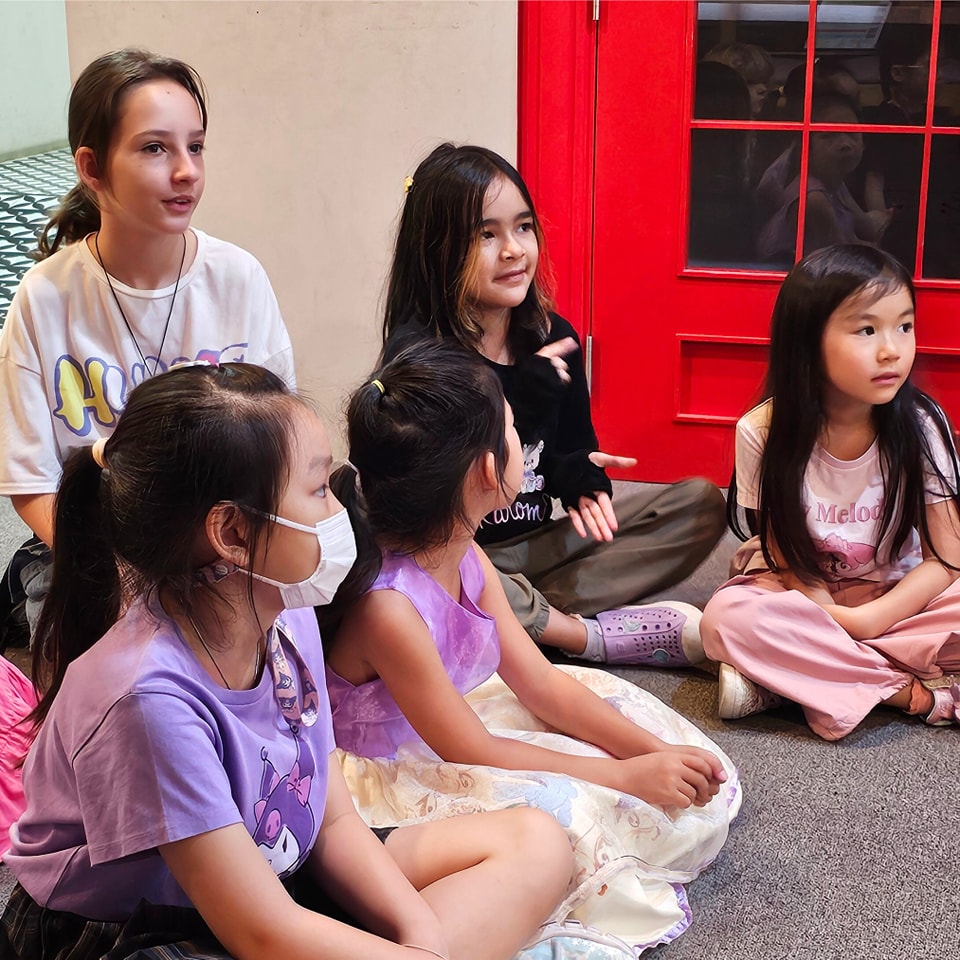
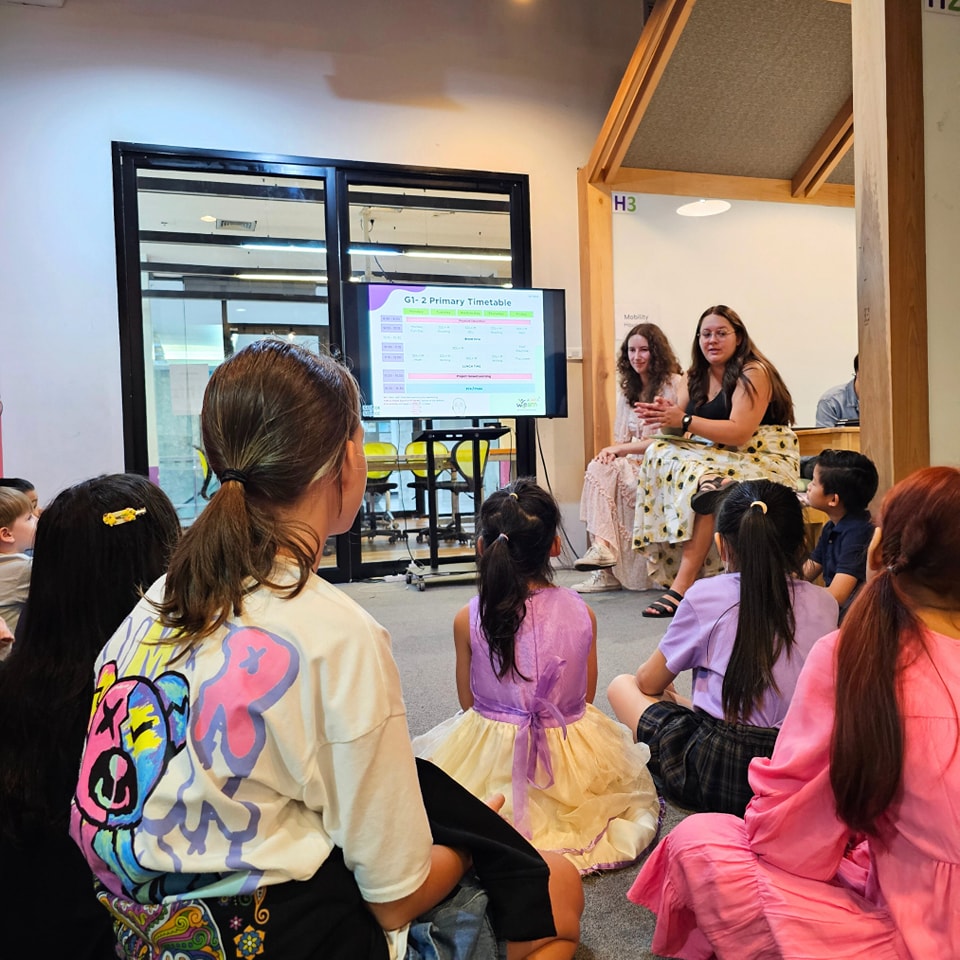
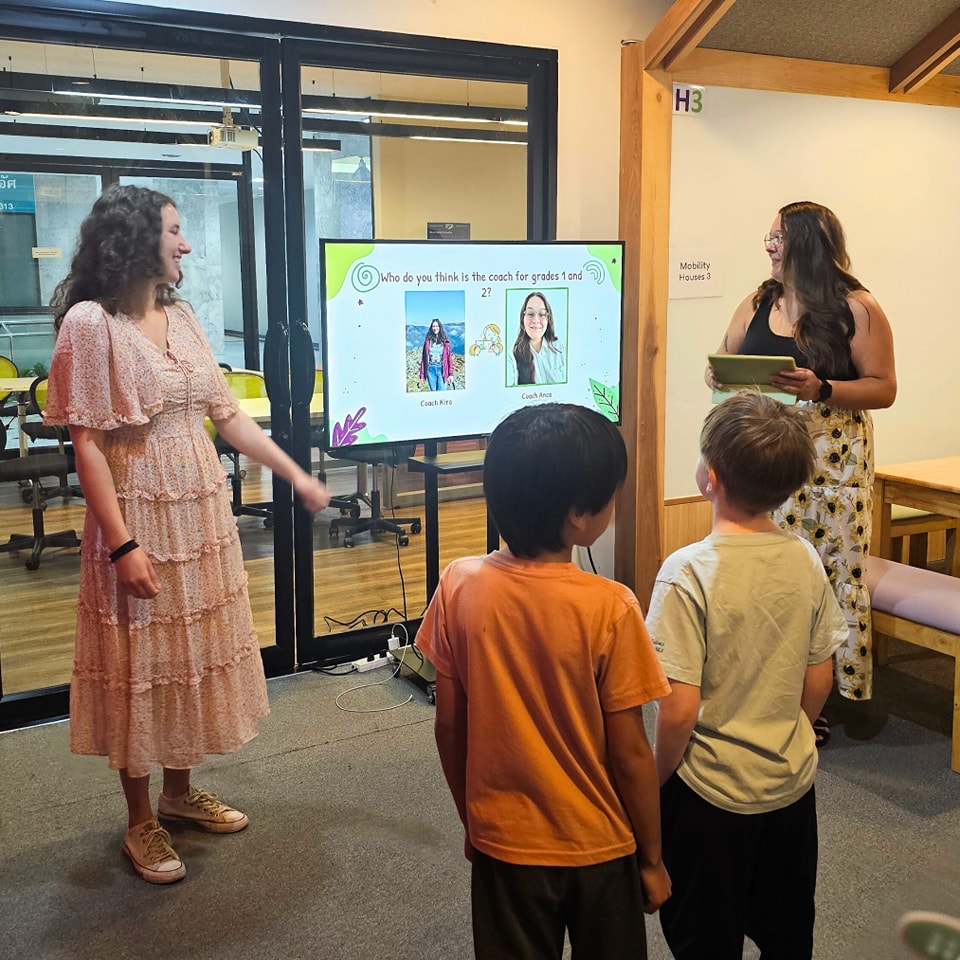
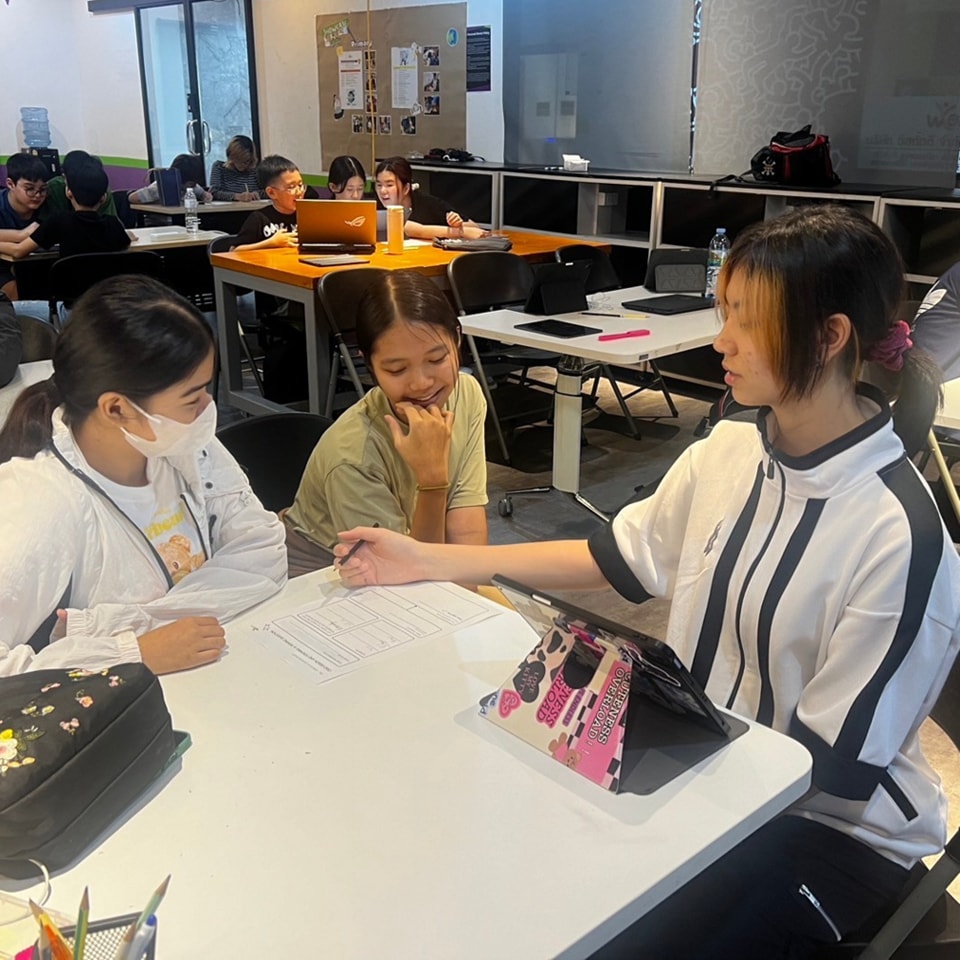
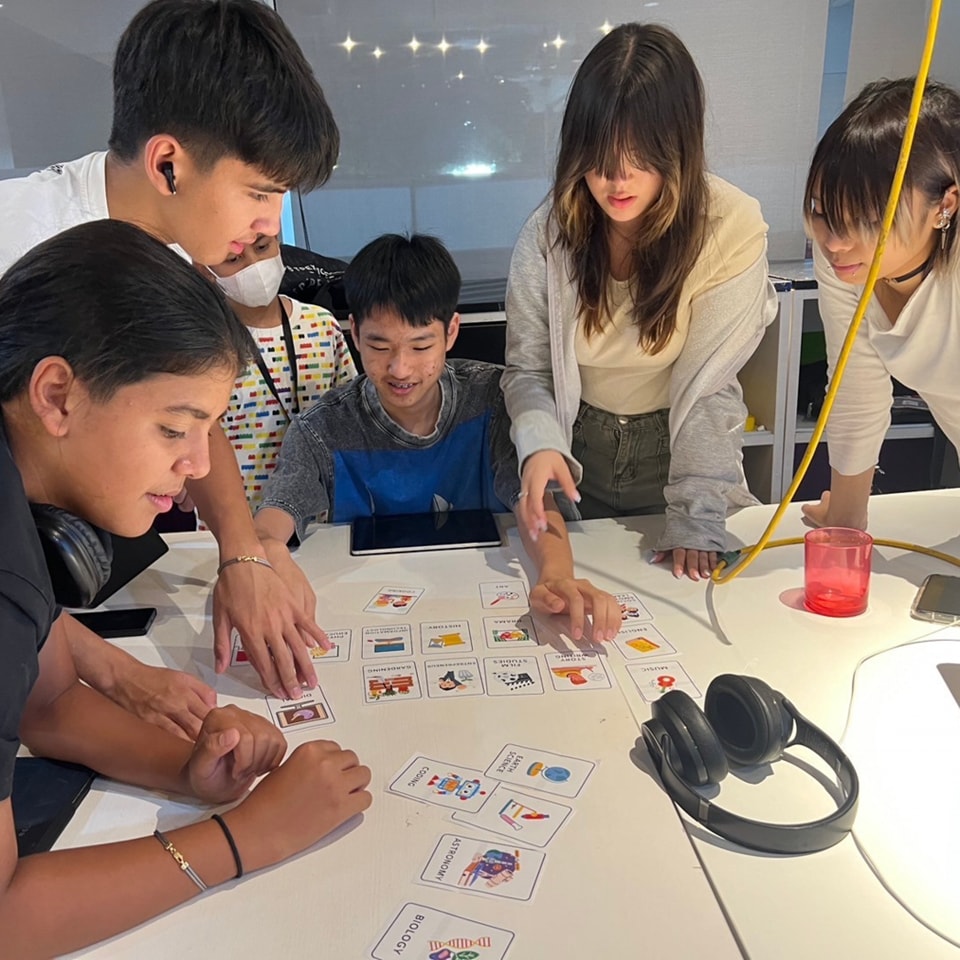
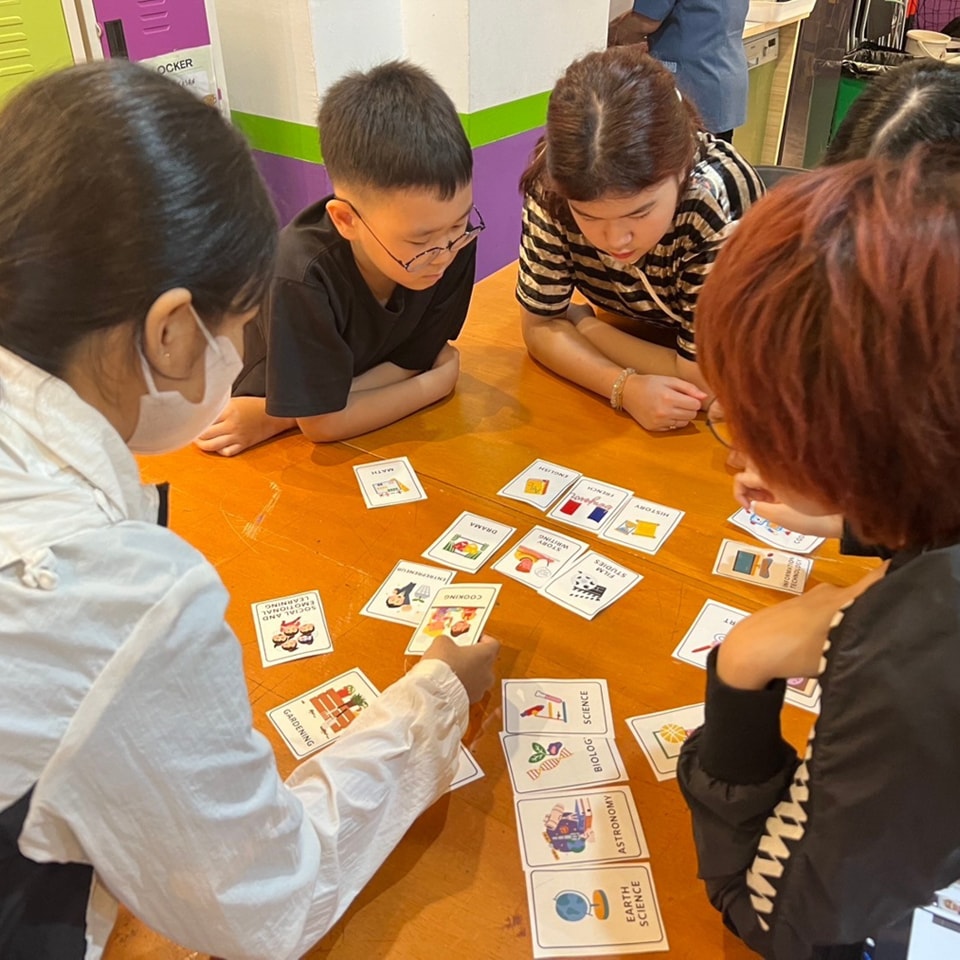
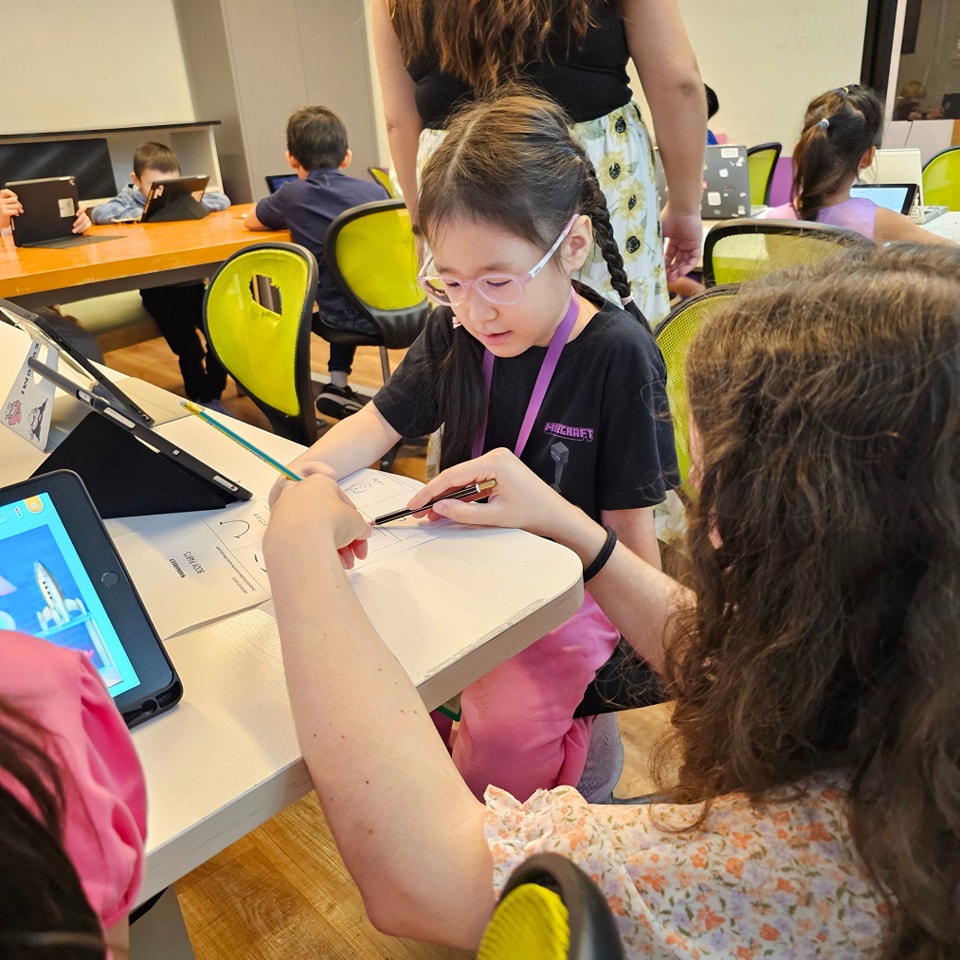
.
For more information :
![]() Line : https://lin.ee/su3dHij (@welearn.)
Line : https://lin.ee/su3dHij (@welearn.)
![]() Email: [email protected]
Email: [email protected]
![]() Tel: 02-117-3278 (Admission Office)
Tel: 02-117-3278 (Admission Office)

✨ Heartfelt Thanks to Our Wonderful Parents for Joining the September Term Orientation! 🙌🚀
![]() A heartfelt thank you to all the wonderful families who joined us for our Parents’ Orientation on September 2nd! It was a pleasure to welcome new families into the WeLearn Community and to reconnect with our returning learners after their break.
A heartfelt thank you to all the wonderful families who joined us for our Parents’ Orientation on September 2nd! It was a pleasure to welcome new families into the WeLearn Community and to reconnect with our returning learners after their break.
The day was filled with engaging moments, from meeting our dedicated School Leadership and Education Teams to receiving exciting updates and essential information for a smooth start to the term.
We’re thrilled to begin this new chapter with you and look forward to a fantastic year ahead, brimming with learning, growth, and fun! ![]()
![]()
Thank you for being an essential part of our WeLearn Community!



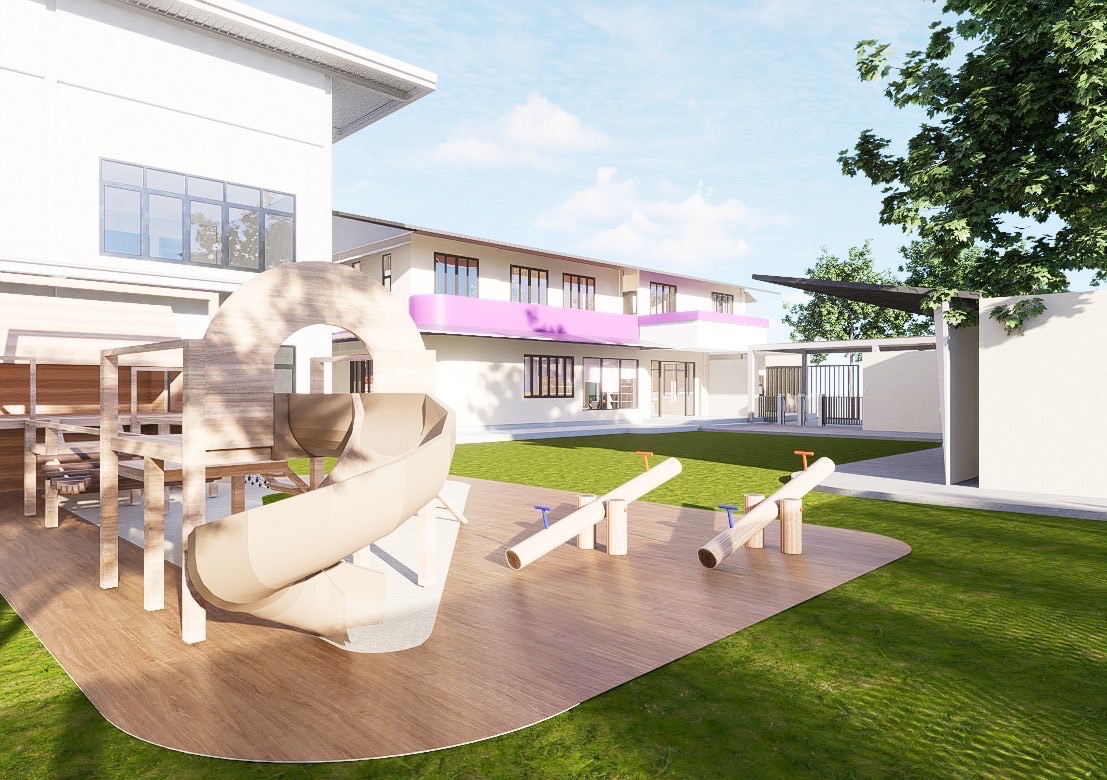
WeLearn Innovative Campus for Future Learners Now at Sathorn-Rama IV Road
Imagine a place where your child’s curiosity is ignited, where innovation is not just encouraged but woven into the very fabric of learning. Welcome to WeLearn Innovative School, opening this September on a sprawling 2-rai campus beside Rama IV. Here, the future of education unfolds in an inspiring next-generation environment designed to cultivate young minds into real-life problem solvers and creative thinkers.
Learning environment featuring:
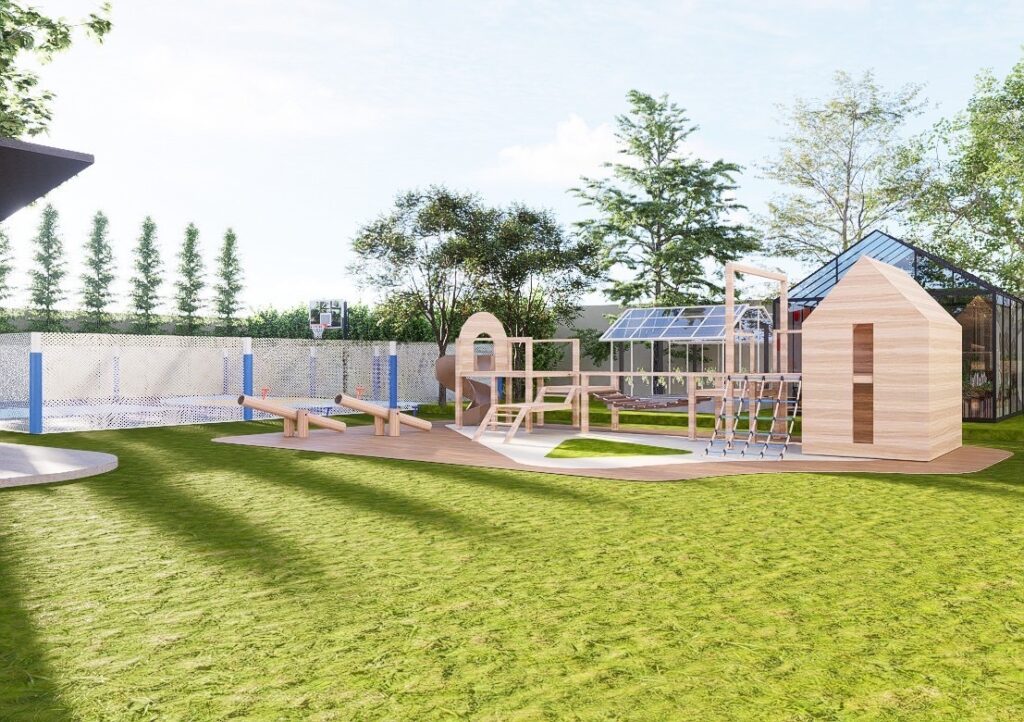
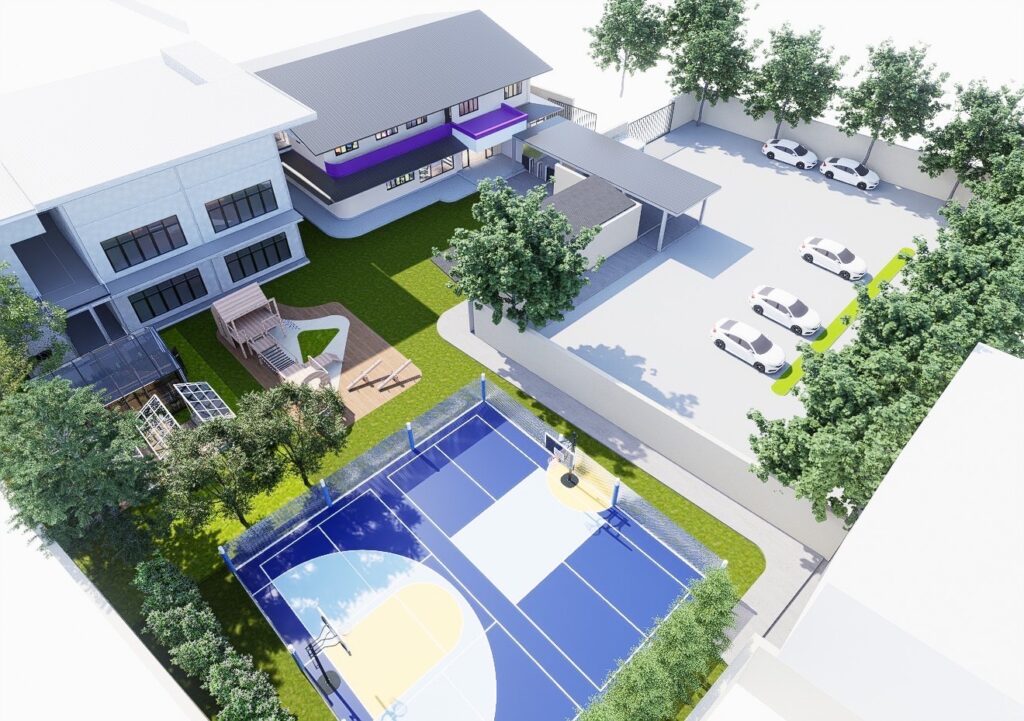
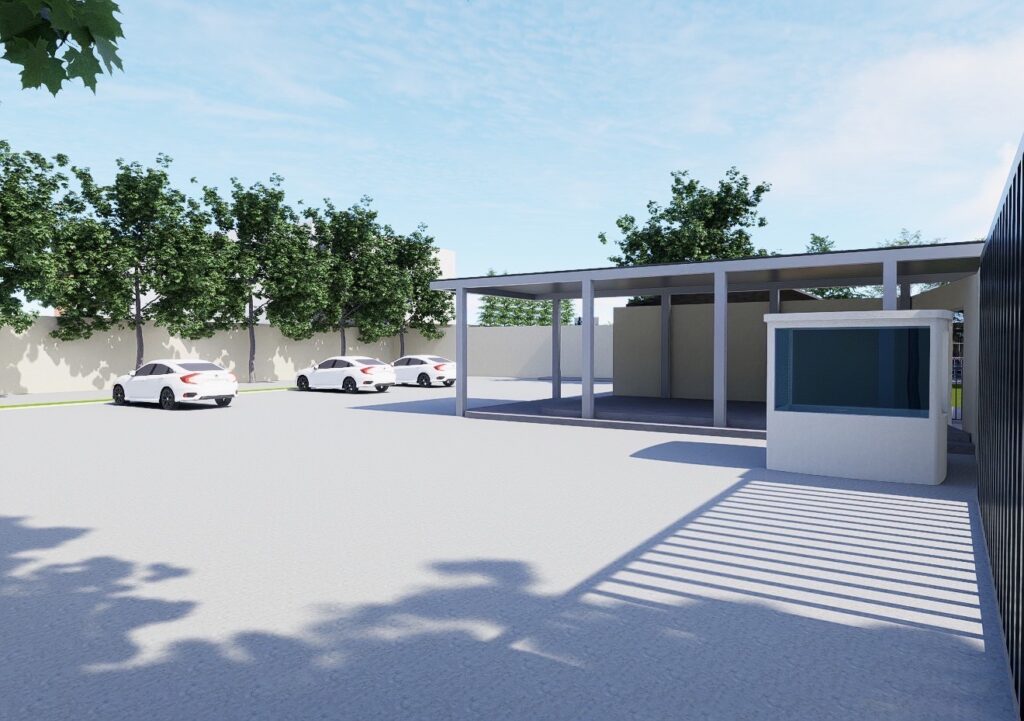
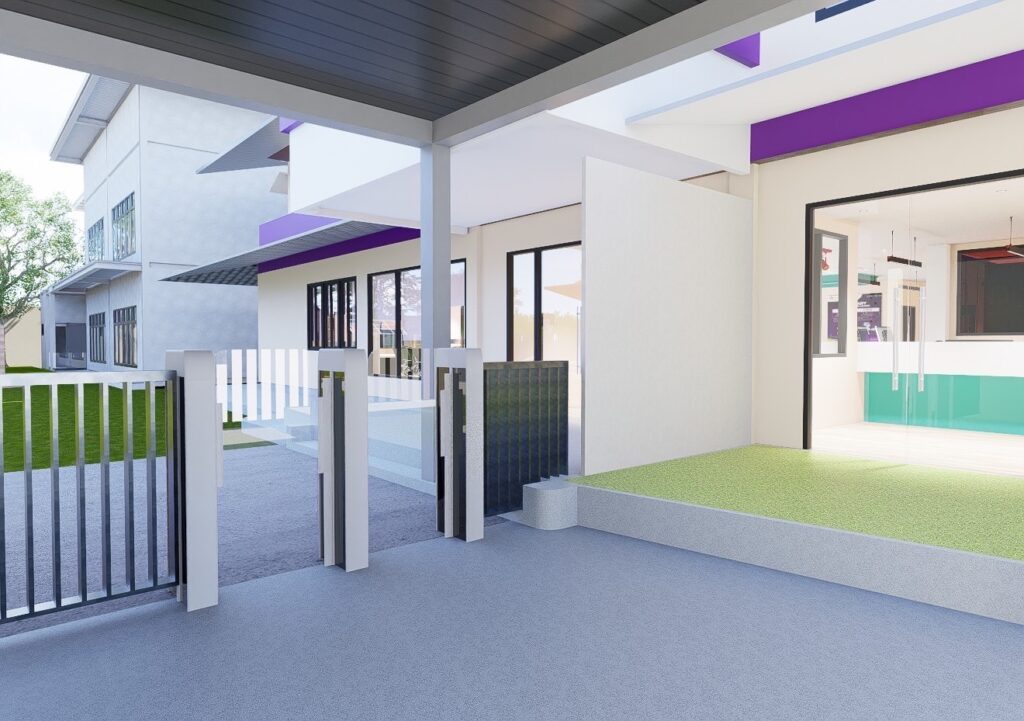
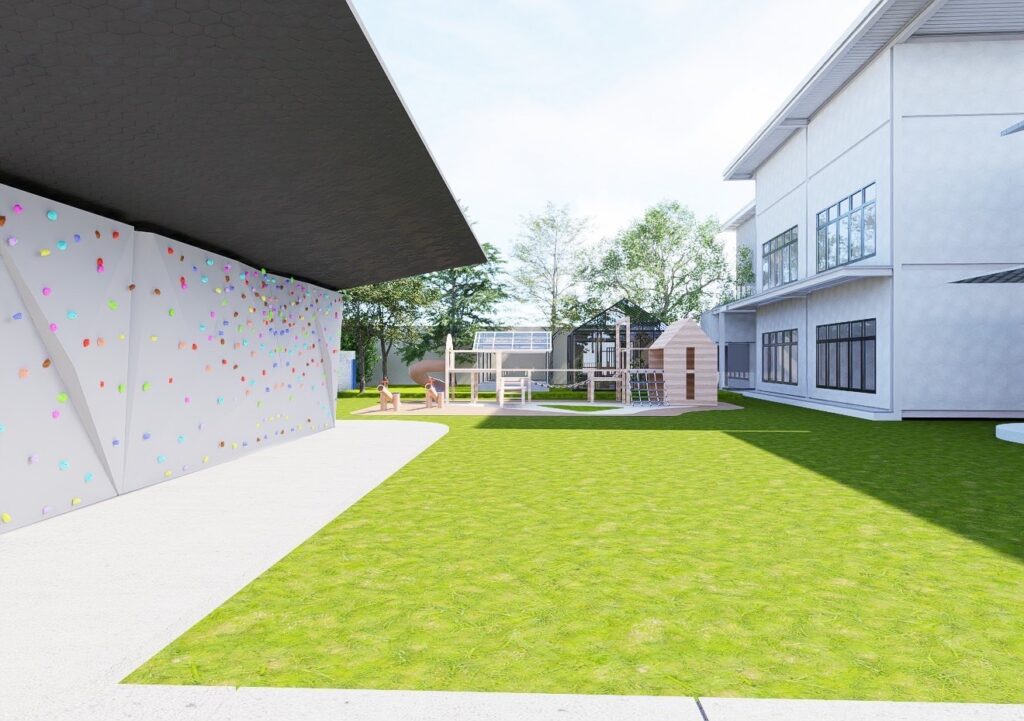
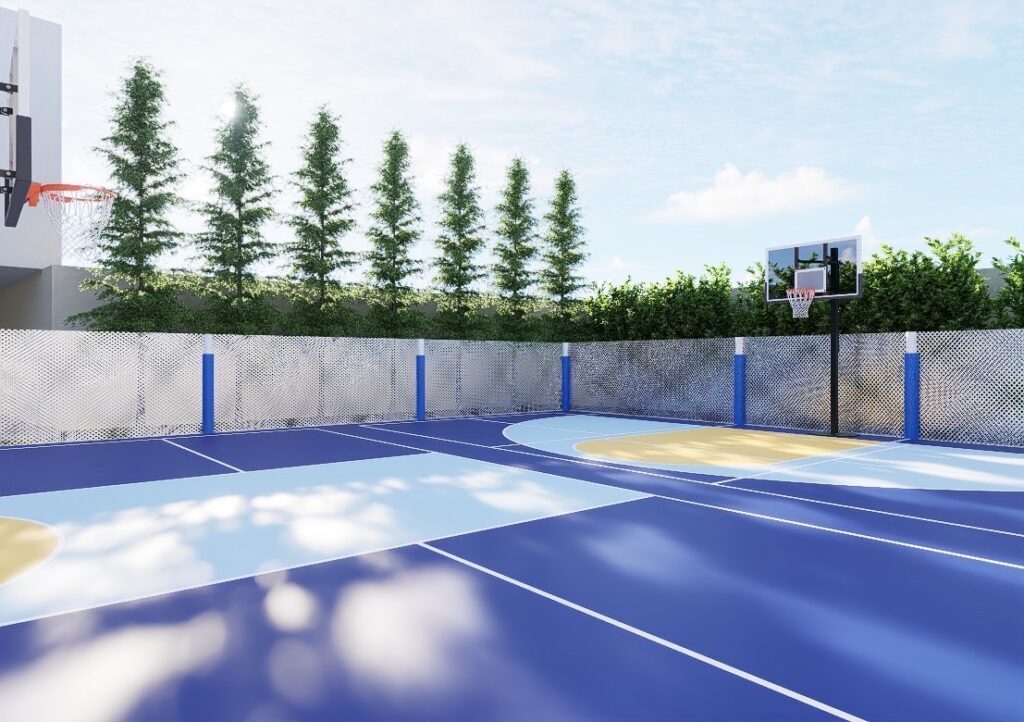
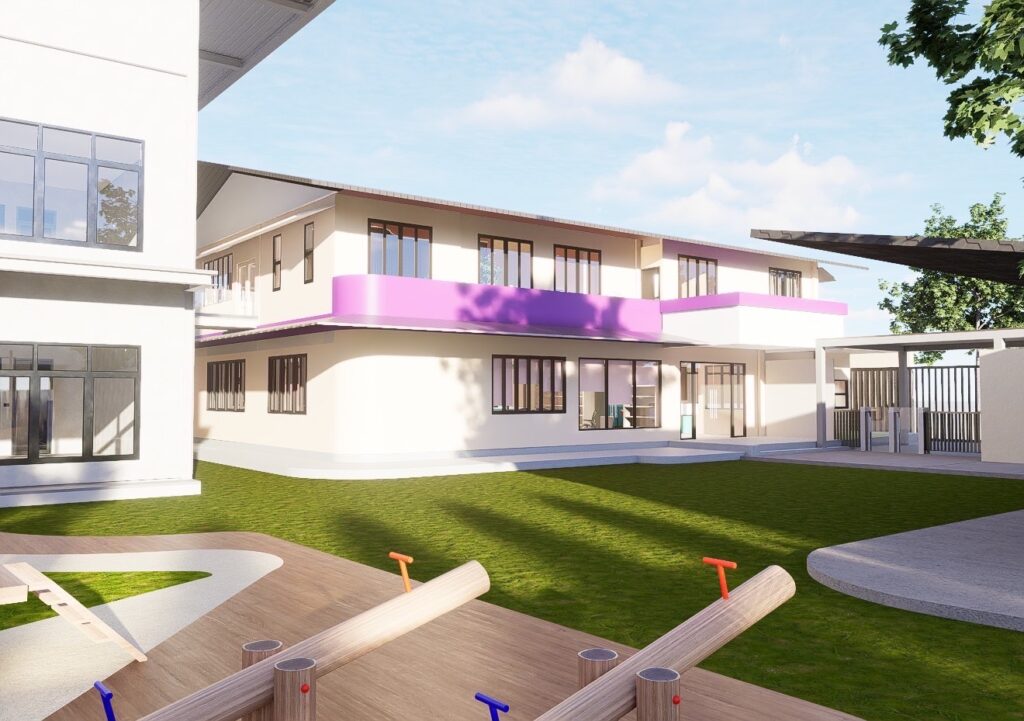
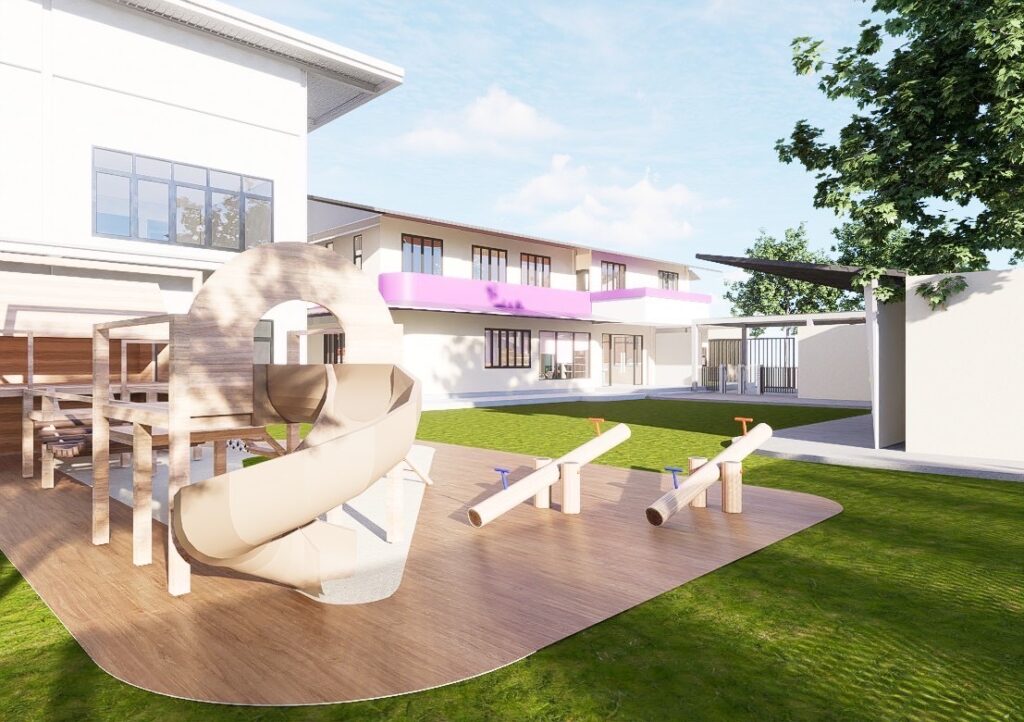
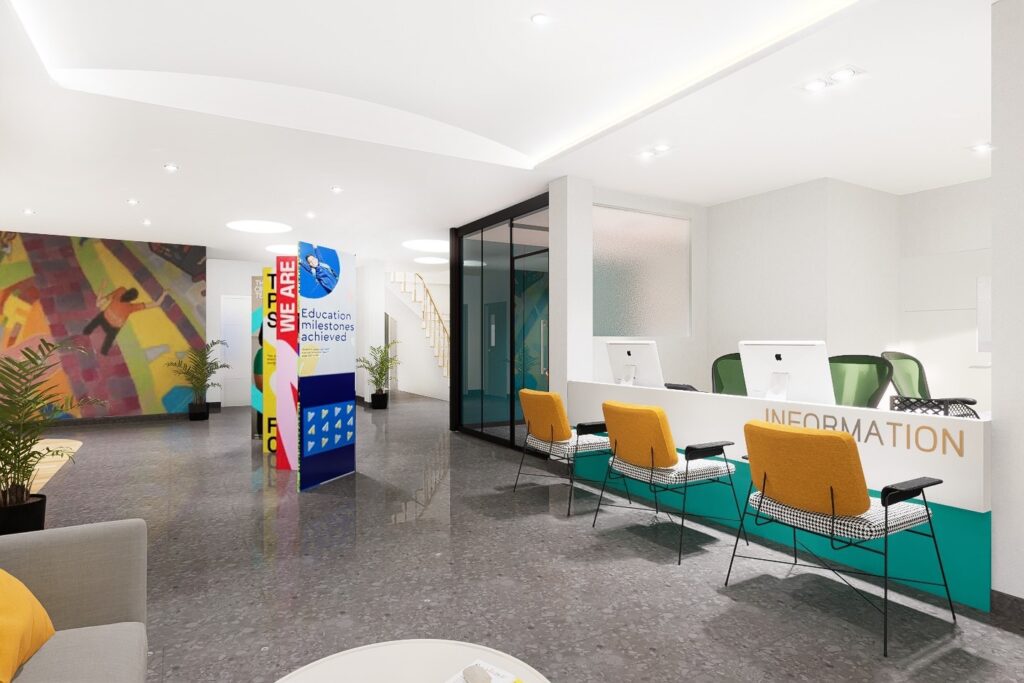
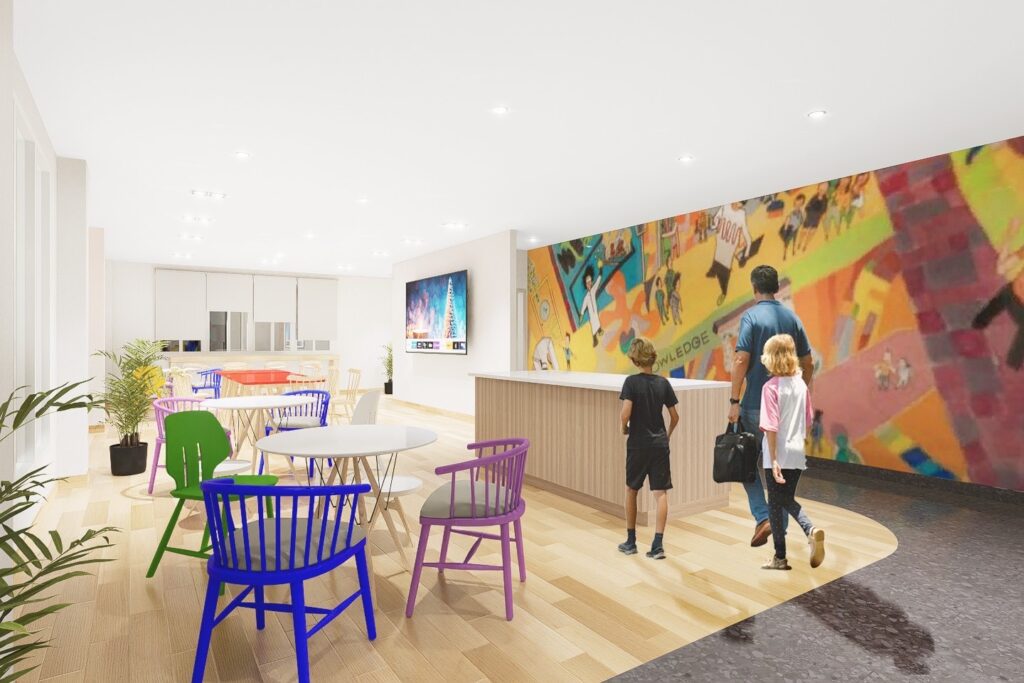
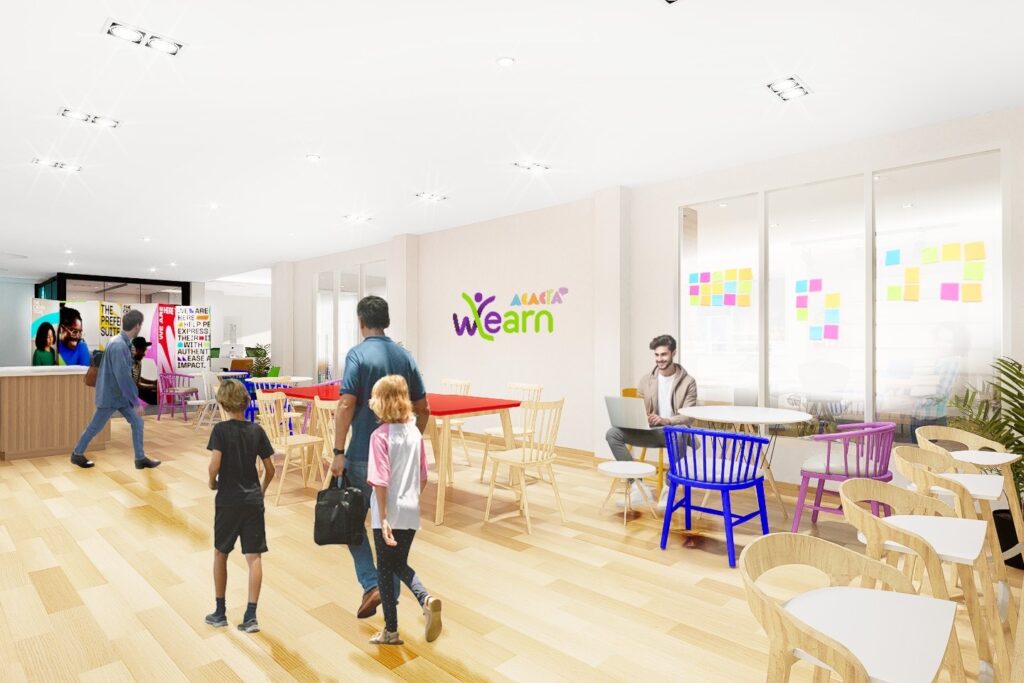
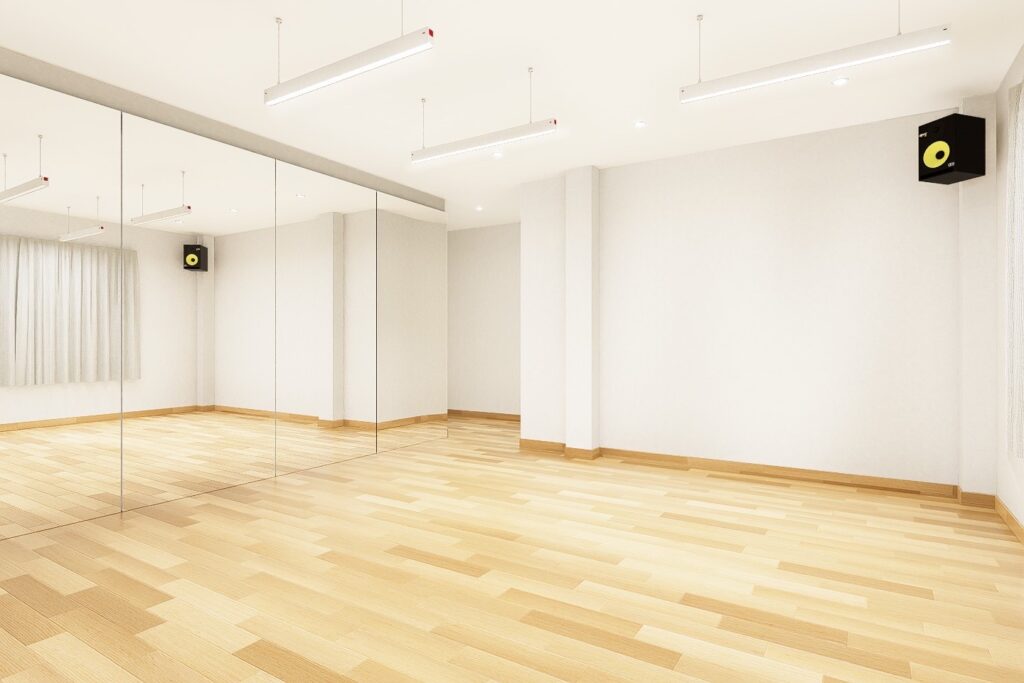
• ![]() Cutting-Edge Fabrication Lab: Inspired by MIT’s Fab Lab
Cutting-Edge Fabrication Lab: Inspired by MIT’s Fab Lab
• ![]() Science/STEM Labs
Science/STEM Labs
• ![]() Hands-On and Outdoor Learning Areas
Hands-On and Outdoor Learning Areas
• ![]() Outdoor Play and Sports Facilities
Outdoor Play and Sports Facilities
Our curriculum is a blend of the best international standards, including US, UK, and French programs, enriched with project-based learning and outdoor experiential activities. At WeLearn, education goes beyond the classroom, preparing learners for a future that values creativity, innovation, and real-world problem-solving.
Join us on this exciting journey towards a brighter future. Admissions are now open for the academic year 2024-2025.
Read More